Table of contents
Why Electric Heat Pumps Are Revolutionizing Home Comfort in Birmingham
An electric heat pump system delivers year-round heating and cooling with a single unit. If you want lower energy bills, steadier temperatures, and fewer systems to maintain, a heat pump is a smart fit for Greater Birmingham homes. Unlike furnaces that burn fuel to create heat, heat pumps transfer existing heat between indoors and outdoors, making them highly efficient.
Key Benefits of Electric Heat Pump Systems:
- Dual Functionality - One system handles both heating and cooling
- Energy Efficiency - Uses up to 75% less electricity than electric resistance heating
- Year-Round Comfort - Maintains consistent temperatures in Alabama's mild climate
- Lower Carbon Footprint - Reduces greenhouse gas emissions compared to fossil fuel systems
- Cost Savings - Potential utility bill reductions of 30-50% over traditional systems
Think of how a refrigerator works: it removes heat from inside the box and releases it into your kitchen. A heat pump does the same, and a reversing valve lets it switch direction for the seasons. In winter, it pulls heat from outdoor air and brings it inside; in summer, it moves indoor heat outside just like a traditional air conditioner.
If you're considering upgrading your HVAC system, learn more about heat pump options or schedule a consultation with our certified technicians to find the perfect solution for your home.
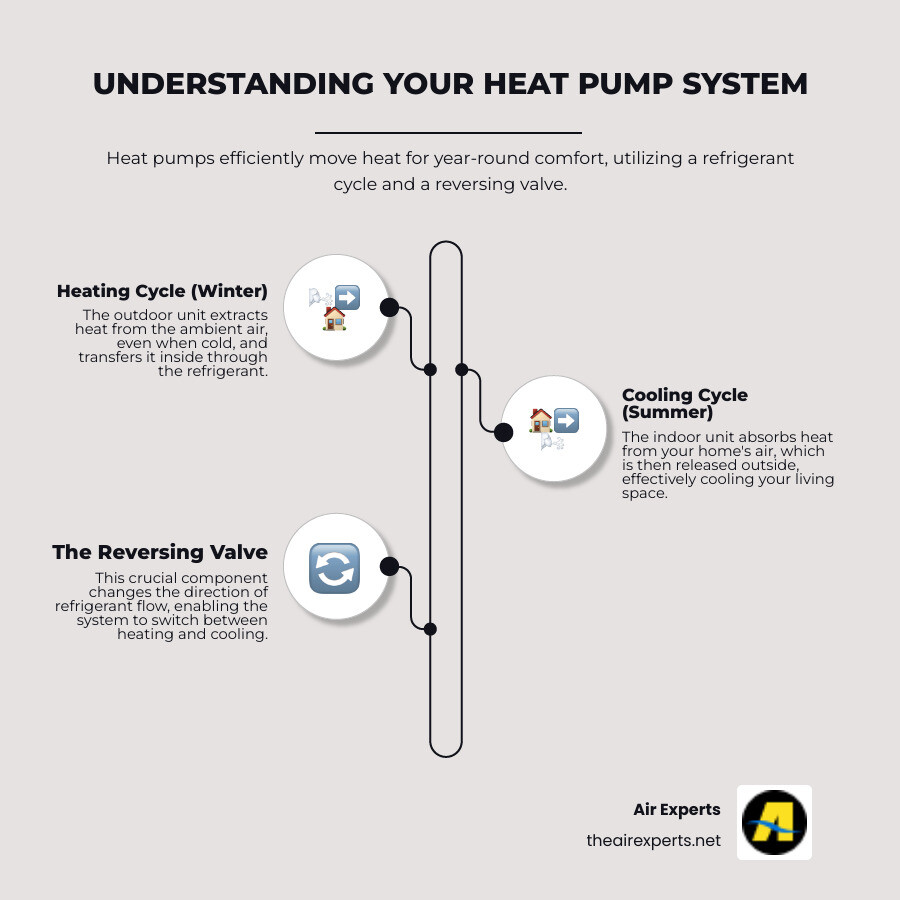
Types of Heat Pumps: Finding the Right Fit for Your Home
Not all electric heat pump systems are the same, and that is good news. Different homes have different needs, and there is a heat pump type for nearly every situation in Greater Birmingham.
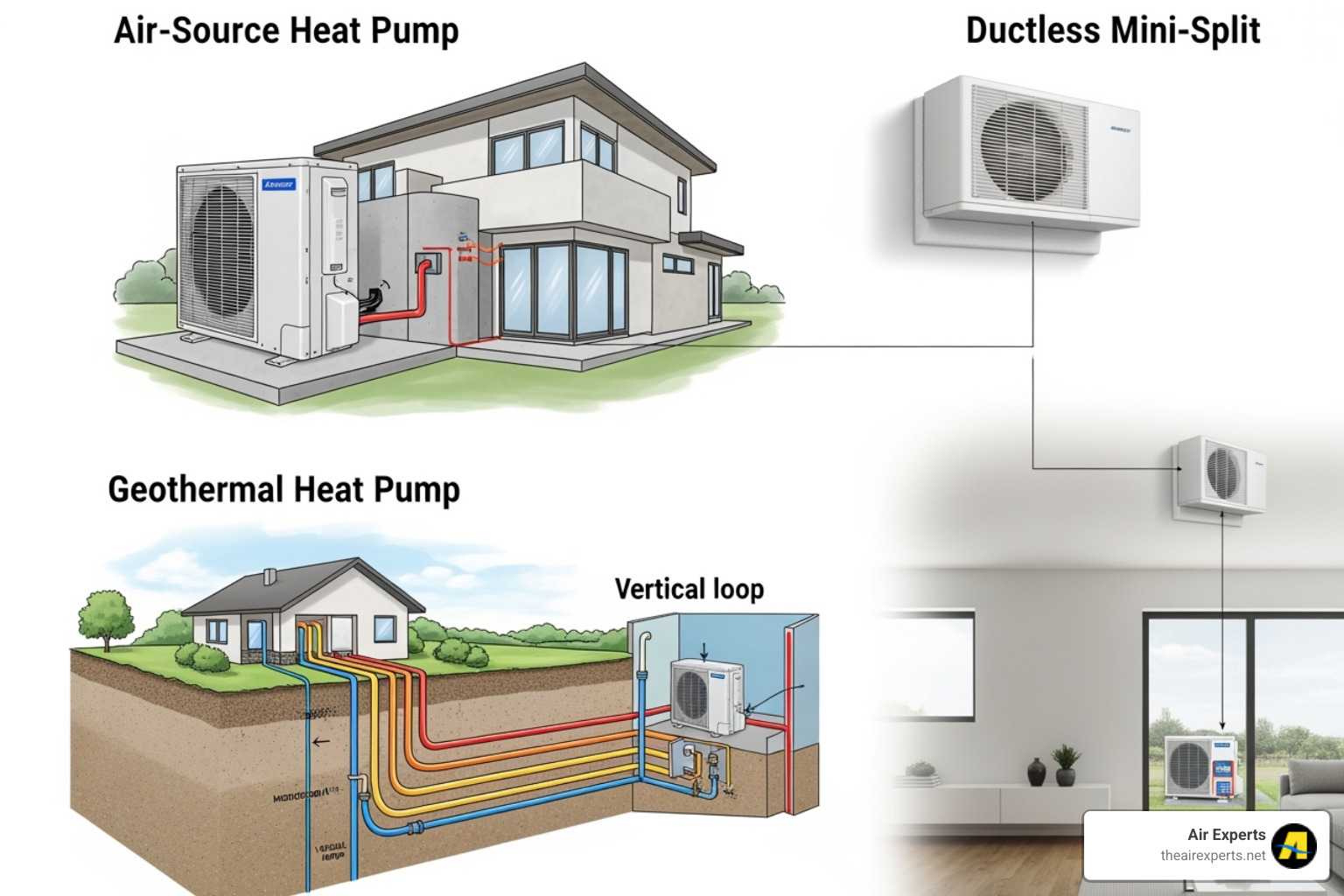
The main differences come down to where they pull heat from and how they distribute it. Some exchange heat with outdoor air, others tap into the earth, and some skip ductwork entirely. If you've ever wondered how heat pumps compare to traditional air conditioning systems, our article on ac and heat pump systems breaks down the key differences.
| Feature | Air-Source Heat Pump | Ground-Source (Geothermal) Heat Pump | Ductless (Mini-Split) Heat Pump |
|---|---|---|---|
| Installation | Outdoor unit, uses existing ductwork or new | Underground loops, more complex, higher upfront | Wall-mounted indoor units, no ductwork needed |
| Efficiency | High, especially with cold-climate models | Very high, consistent year-round | High, ideal for zoned heating/cooling |
| Best Use Case in AL | Most common, good for homes with existing ducts | New construction or major renovations, stable comfort | Room additions, homes without ducts, targeted comfort |
Air-Source Heat Pumps
An air-source heat pump moves heat between your home and the outside air, working like a reversible air conditioner. Modern models perform efficiently even in temperatures below what we usually see in Alabama. If your home already has ductwork, these systems integrate well for centralized heating and cooling. Learn more in the DOE guide on Air-Source Heat Pumps.
Ground-Source (Geothermal) Heat Pumps
Just a few feet underground, temperatures stay stable year-round. Geothermal systems use buried loops to exchange heat with the earth, delivering excellent efficiency and consistent comfort. Indoor components can last up to 24 years, and ground loops 50 years or more. Installation is more involved, making them ideal for new builds or major renovations. See ENERGY STAR certified geothermal heat pumps.
Ductless Mini-Split Heat Pumps
Ductless mini-splits give you zoned comfort without ductwork. An outdoor unit connects to one or more wall-mounted indoor units, each controlling its own zone. They are great for additions, older homes without ducts, or targeted rooms. For installation best practices, watch: Ductless Heat Pump Installation: Best Practices for Manufactured Homes.
The Major Benefits of an Electric Heat Pump System
Switching to an electric heat pump system upgrades both comfort and efficiency. For homeowners across Greater Birmingham, these systems can lower utility use, stabilize indoor temperatures, and reduce environmental impact.
Best Energy Efficiency
Heat pumps move heat rather than create it, so they can reduce your electricity use for heating by up to 75% compared with electric resistance heating. When shopping, look for HSPF/HSPF2 (heating) and SEER/SEER2 (cooling). Higher numbers mean better performance, and ENERGY STAR ae certified heat pumps meet strict efficiency standards.
Variable-speed technology further boosts efficiency by matching output to your home's needs and avoiding wasteful on/off cycling.
Improved Home Comfort
Heat pumps deliver even temperatures and steady airflow, reducing hot and cold spots. Variable-speed operation keeps conditions consistent without big swings. In Alabama summers, high-efficiency heat pumps excel at dehumidification, so you can feel comfortable at a slightly higher thermostat setting.
Environmental Benefits
Because they run on electricity that is getting cleaner over time, heat pumps help cut household emissions. More homeowners are electrifying for a cleaner future while upgrading comfort. Learn more in this video: Net Zero Transition: Electrify Your Home with Heat Pumps(5:12).
Selection, Installation, and Maintenance Essentials
Bringing an electric heat pump system into your home works best with careful selection, professional installation, and routine maintenance. We are here to guide you and help with debunking heat pump myths.
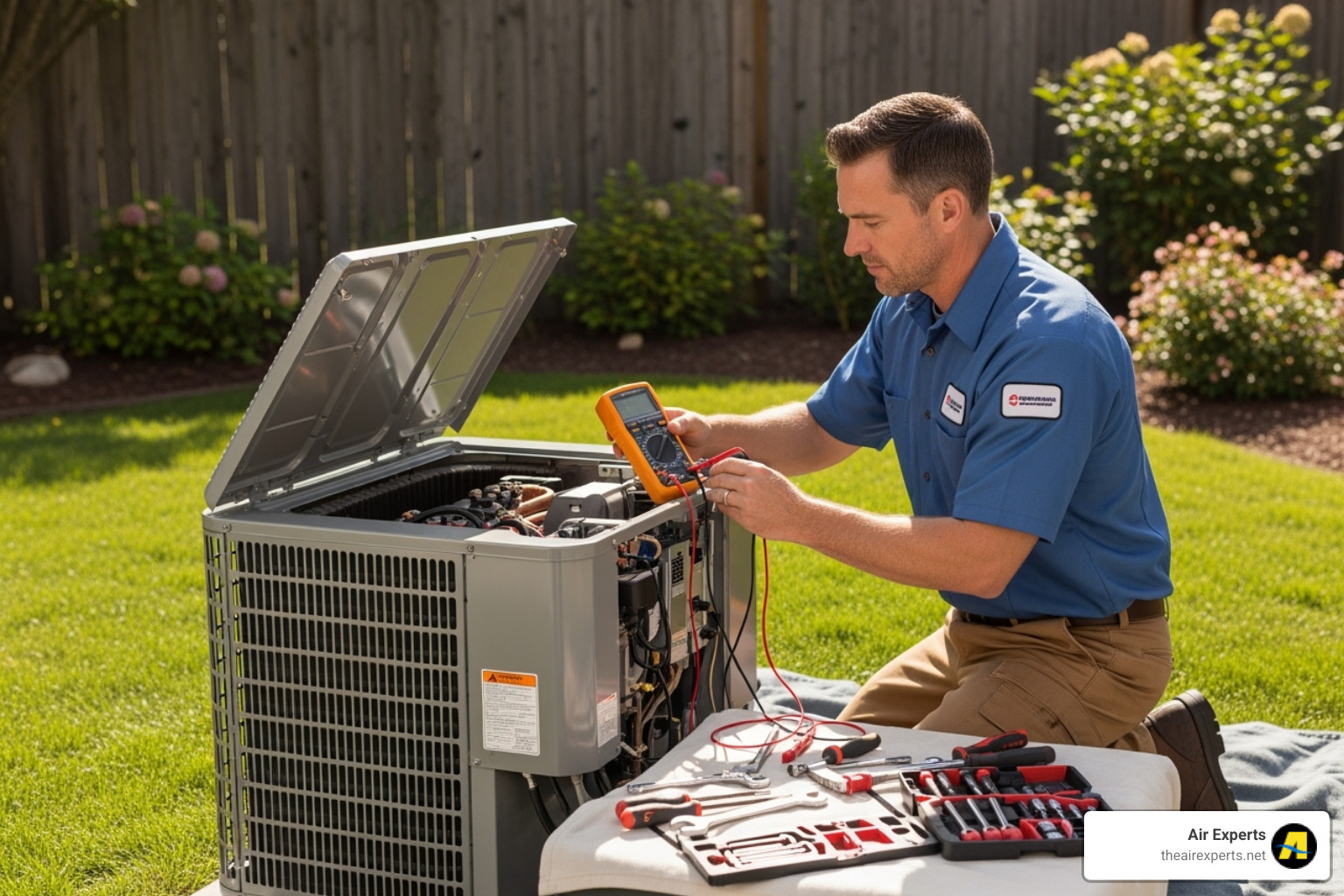
Choosing the Right Electric Heat Pump System
Proper sizing is essential. Undersized units run nonstop, while oversized units short-cycle and waste energy. We calculate heating and cooling loads based on your home's specifics.
Your insulation and air sealing affect equipment size and performance. Improving the envelope first can reduce loads and increase comfort.
Consider cold-weather performance for chilly stretches. Some homes prefer a dual-fuel setup to maximize flexibility.
Know your SEER2 (cooling) and HSPF2 (heating) ratings; higher numbers indicate better real-world efficiency.
Take advantage of federal tax credits and incentives. The federal Clean Energy Tax Credits for Consumers covers 30 percent of the cost of heat pumps, capped at $2,000 each year. For a helpful demonstration of sizing and selection, see: Using NRCan's Air Source Heat Pump Sizing & Selection tool to drive heat pump sales(4:31).
Professional Installation
Even the best equipment underperforms if installed incorrectly. Ducted systems require tight, balanced ducts; ductless systems need precise placement and refrigerant lines. Confirm electrical capacity early; panel upgrades may be required for larger systems or all-electric homes.
For expert heat pump installation in the heart of Alabama, our teams are ready to serve you in Birmingham, Pelham, and Alabaster.
Maintaining Your Electric Heat Pump System
Routine care keeps your system efficient and reliable.
- Change air filters regularly. Check monthly; replace or clean every 1-3 months.
- Clear debris from the outdoor unit and maintain at least two feet of open space around it.
- Keep indoor vents clear of furniture, rugs, and curtains.
Schedule annual professional tune-ups to inspect and clean coils, verify refrigerant levels and pressures, test electrical connections, confirm thermostat accuracy, and check airflow and drainage.
Learn more about our maintenance services in Birmingham and explore the benefits of spring heat pump maintenance in Pelham. We also offer comprehensive tune-up services in Birmingham.
Frequently Asked Questions about Heat Pumps
We know you might have more questions about electric heat pump systems, and we're here to answer them for Greater Birmingham homeowners.
How long does an electric heat pump last?
Most electric heat pump systems last about 15 years on average. With proper installation and consistent professional maintenance, many run well beyond that. Ground-source systems often last longer, with indoor components up to 24 years and ground loops 50+ years.
Our humid climate can be demanding on HVAC equipment, so annual tune-ups help catch small issues early. If your unit is near or past 15 years and performance is slipping, consider a heat pump replacement birmingham al.
What happens if my heat pump is not cooling?
Common causes include:
- Clogged air filters restricting airflow
- Low refrigerant due to a leak
- Thermostat issues (wrong mode, setpoint, or dead batteries)
- Dirty coils hindering heat transfer
You can check filters and thermostat settings. Refrigerant and coil service require a professional. See our guide on heat pump not cooling, or schedule heat pump repair birmingham al.
Why does my heat pump keep tripping the breaker?
A tripping breaker signals an electrical overload or fault. Typical causes include:
- Dirty air filters forcing motors to work harder
- Low refrigerant overheating the compressor
- Failing motors drawing excessive current
- Electrical issues such as loose connections or failing capacitors
Do not keep resetting the breaker without addressing the cause. Learn more in our post on why heat pump keep tripping breaker. For help, schedule heat pump repair pelham al.
Conclusion: Your Next Step Toward Efficient Home Comfort
An electric heat pump system can transform home comfort with one efficient solution for heating and cooling. Expect lower energy use, steadier temperatures, and a smaller carbon footprint.
At Air Experts, we guide you through selection, installation, and maintenance with honest advice and dependable service across the Greater Birmingham area, including Alabaster, Chelsea, Helena, Hoover, Pelham, and Vestavia Hills.
Ready to see what a heat pump can do in your home? Contact us for expert heat pump service and let's talk about your comfort goals.
.svg)
.svg)
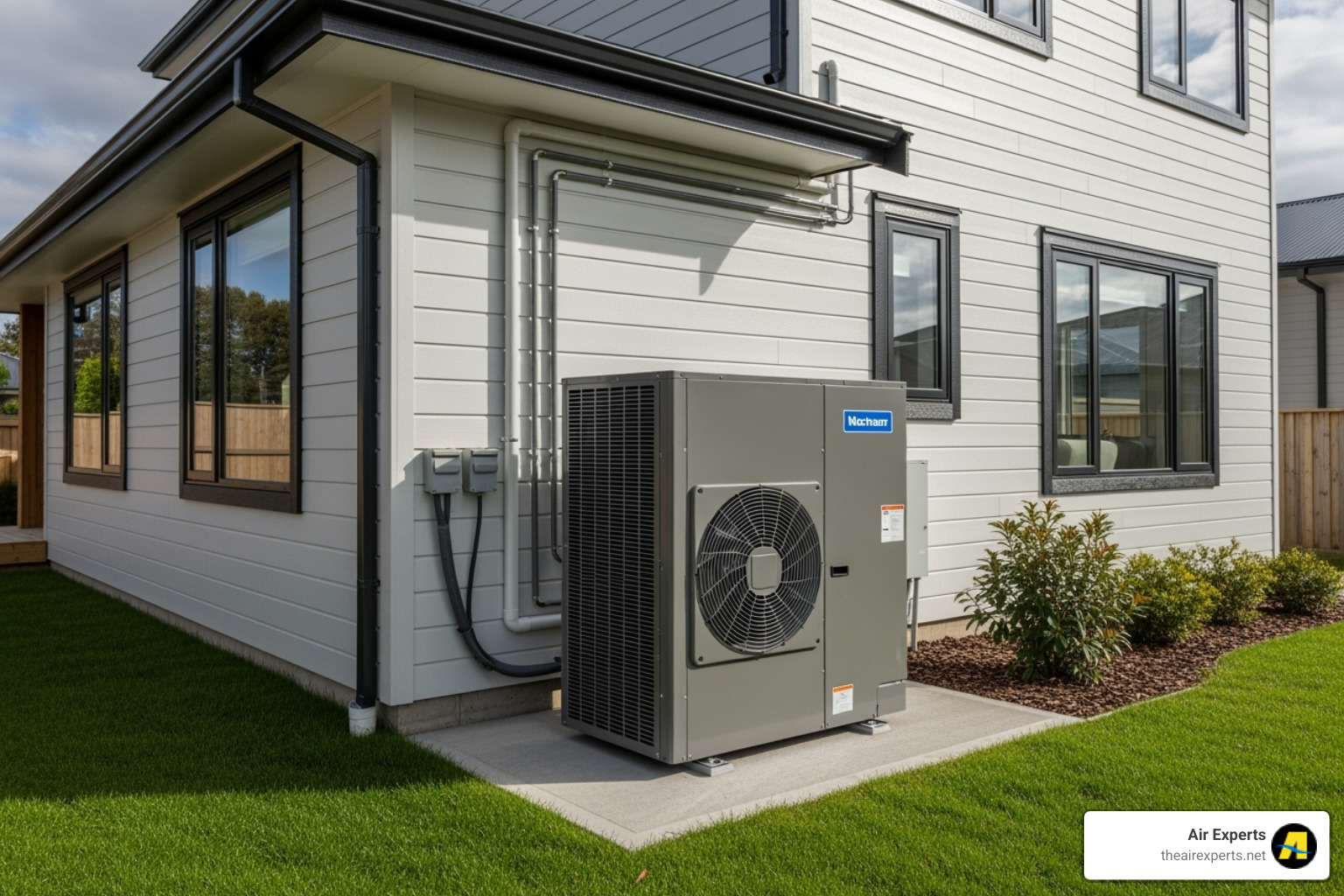

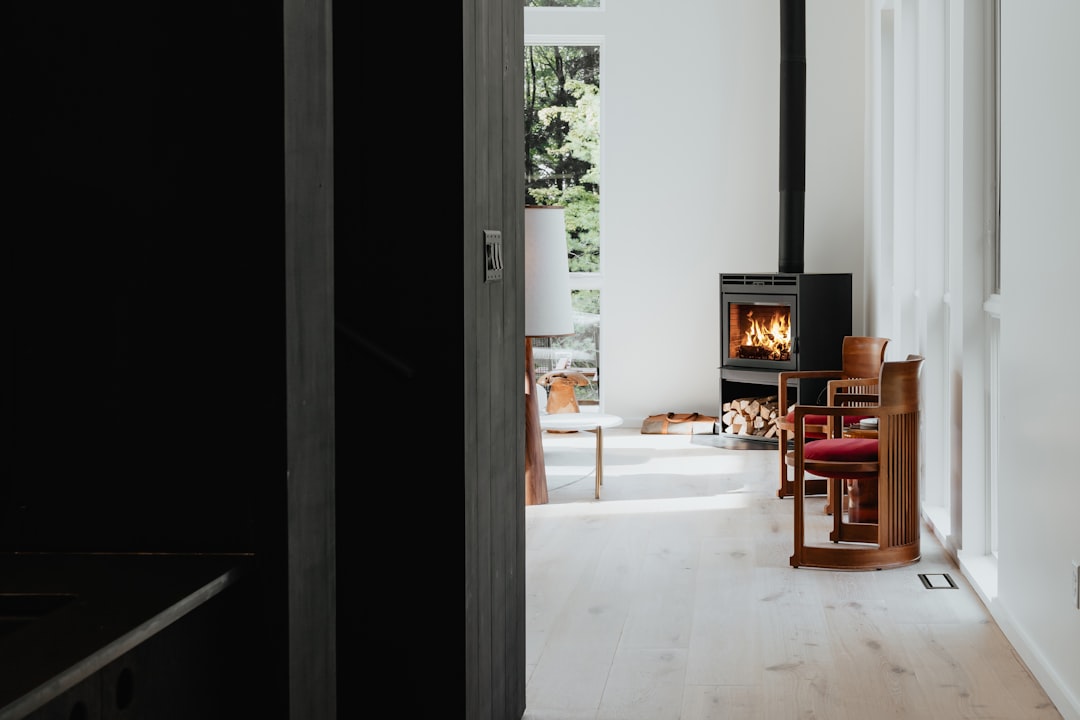

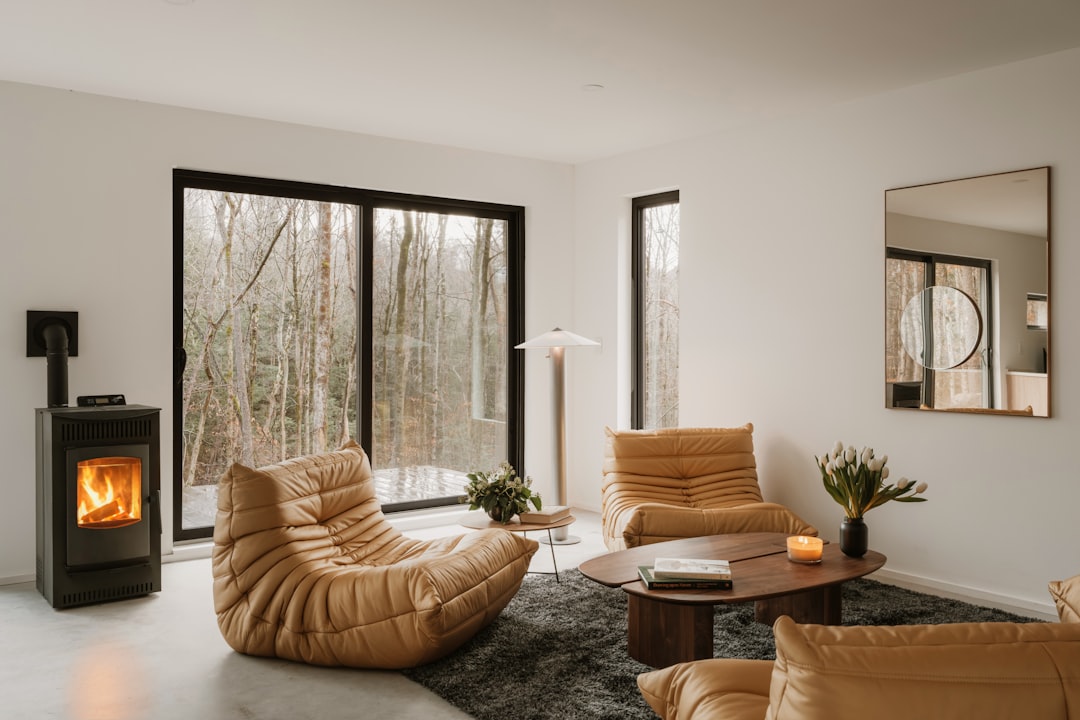

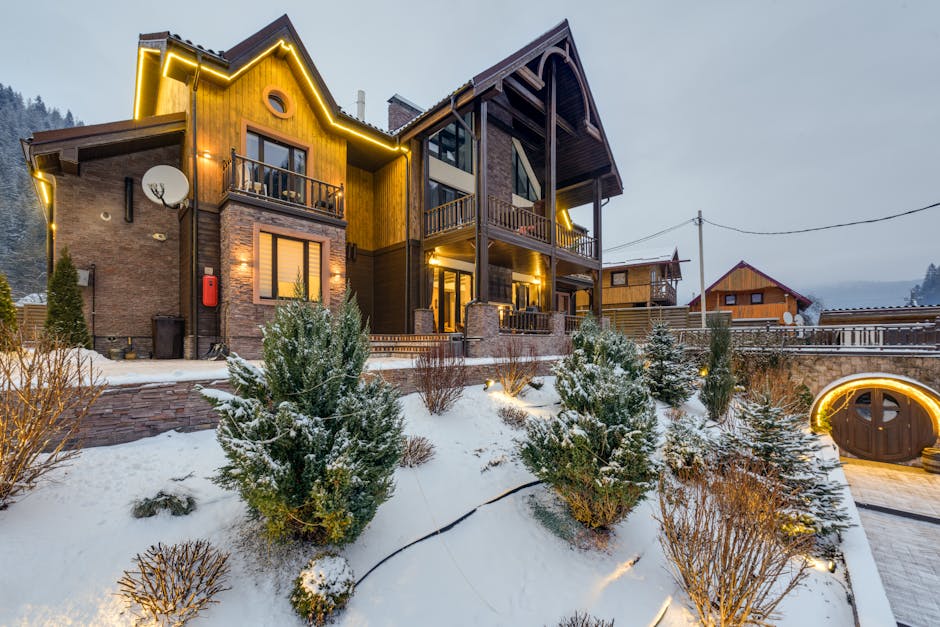

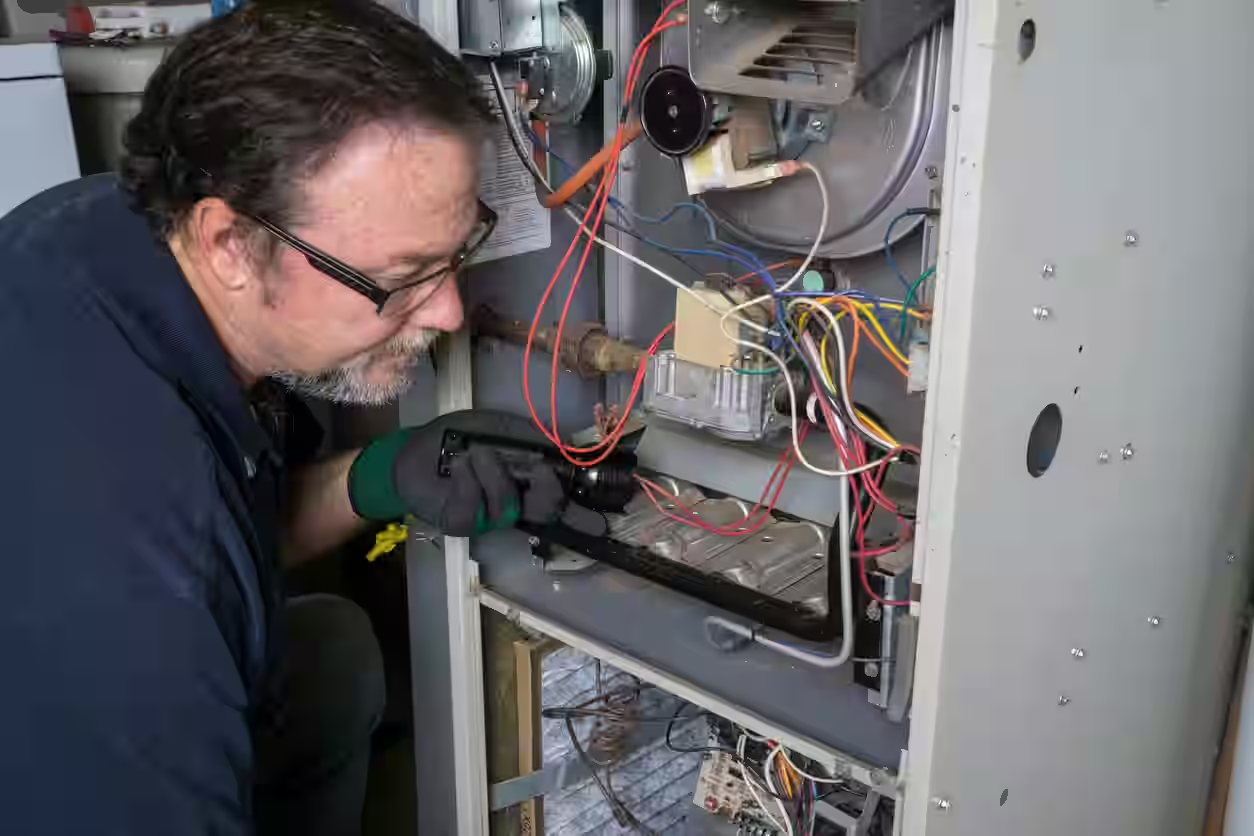
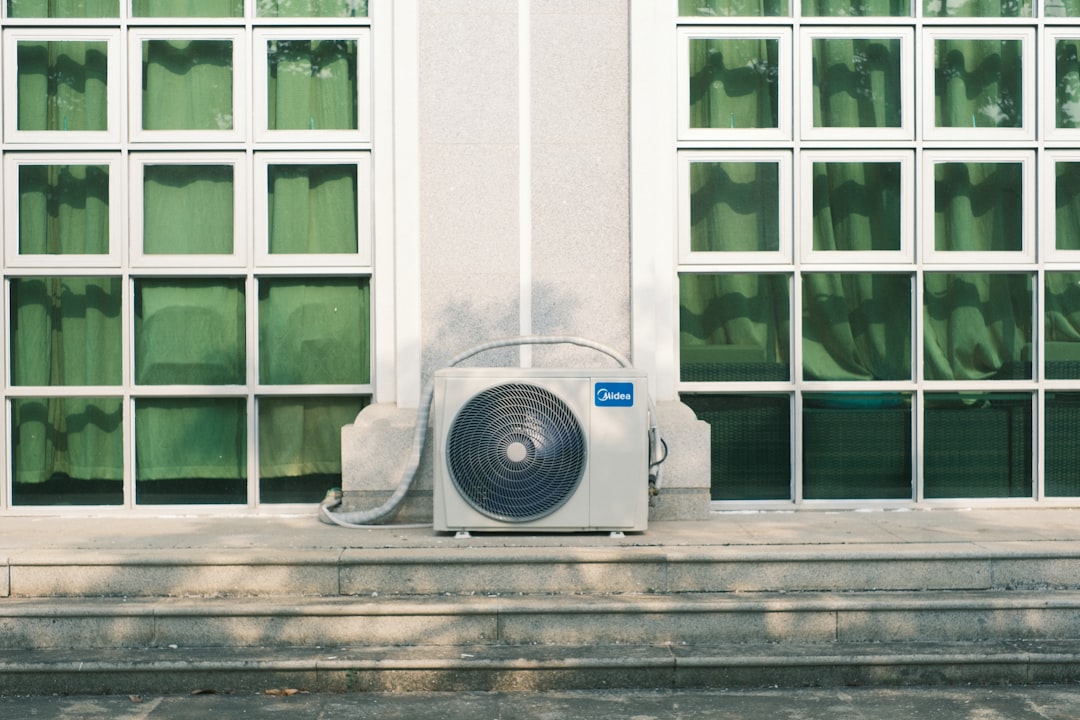

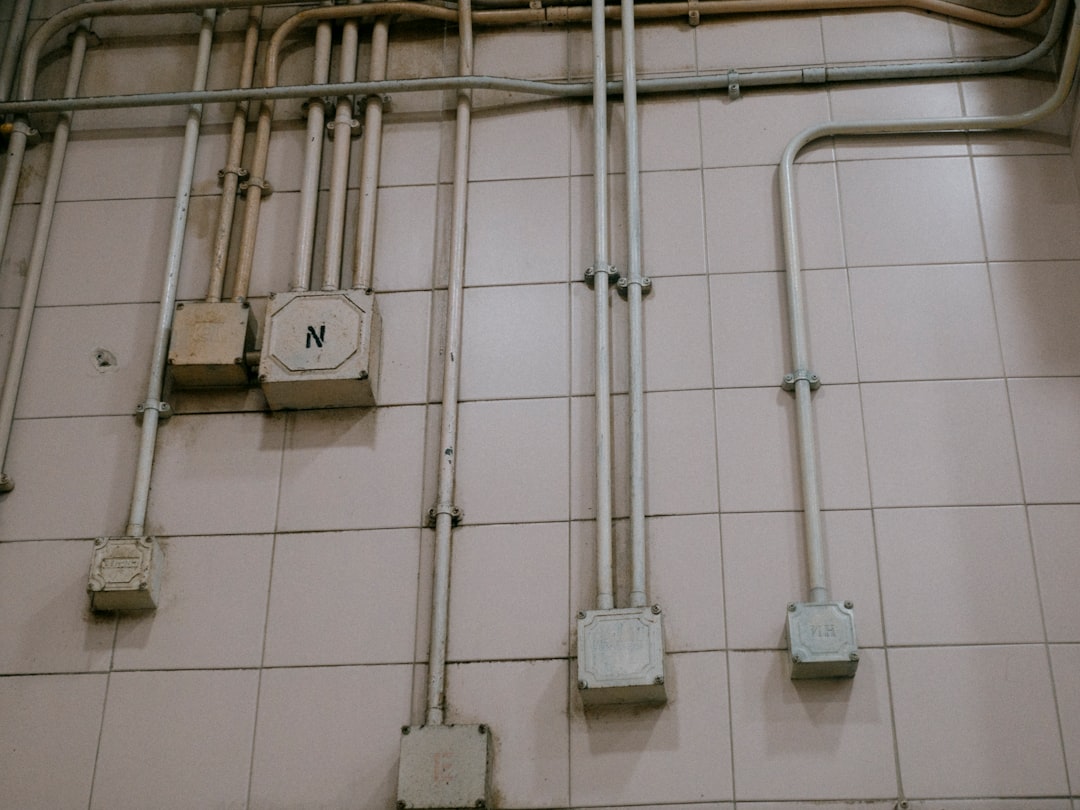
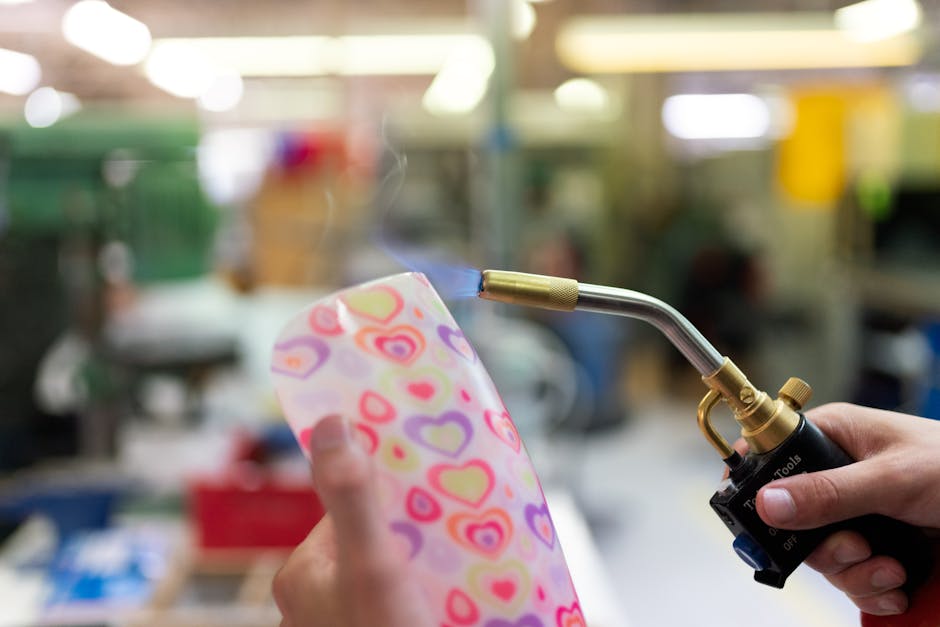

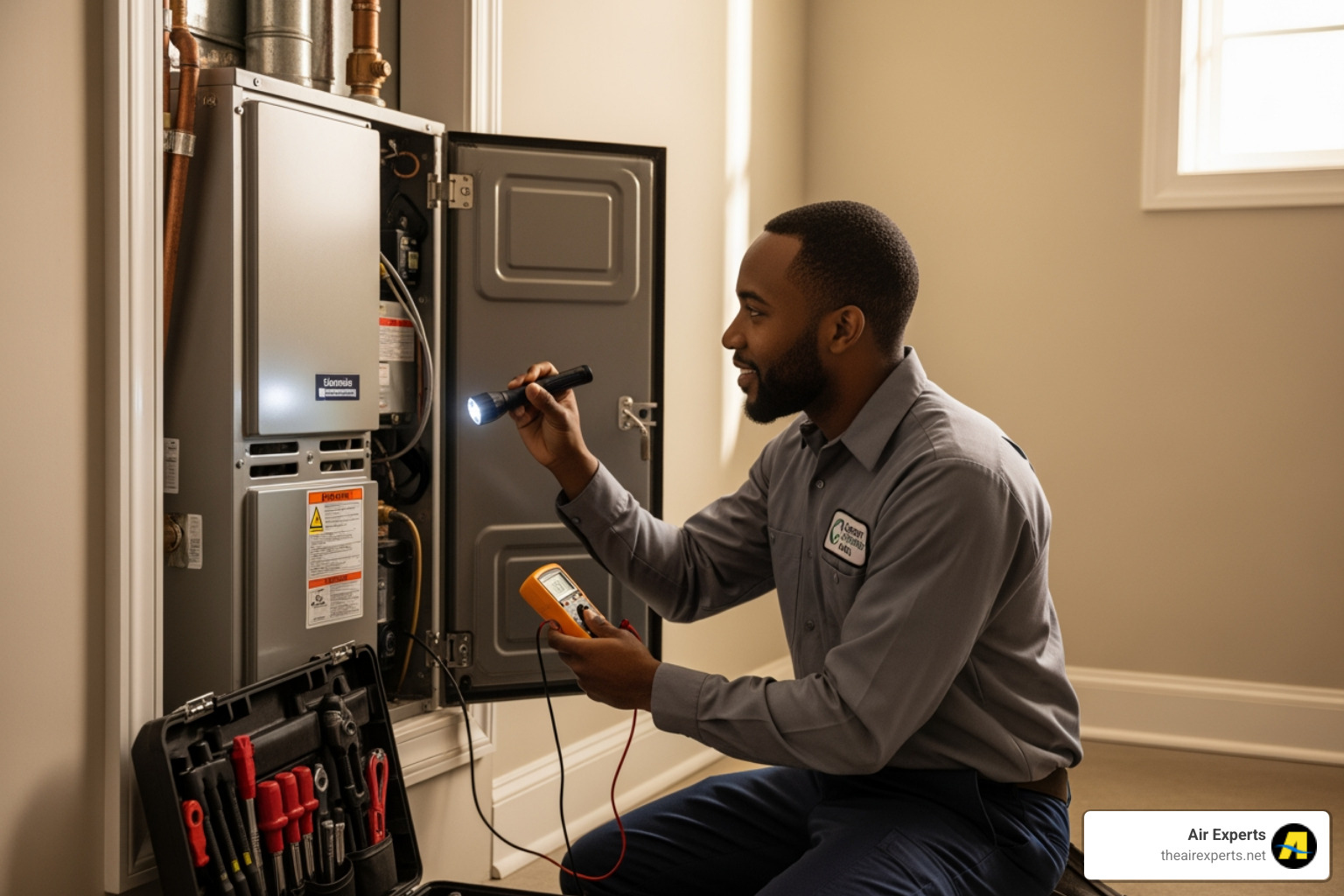
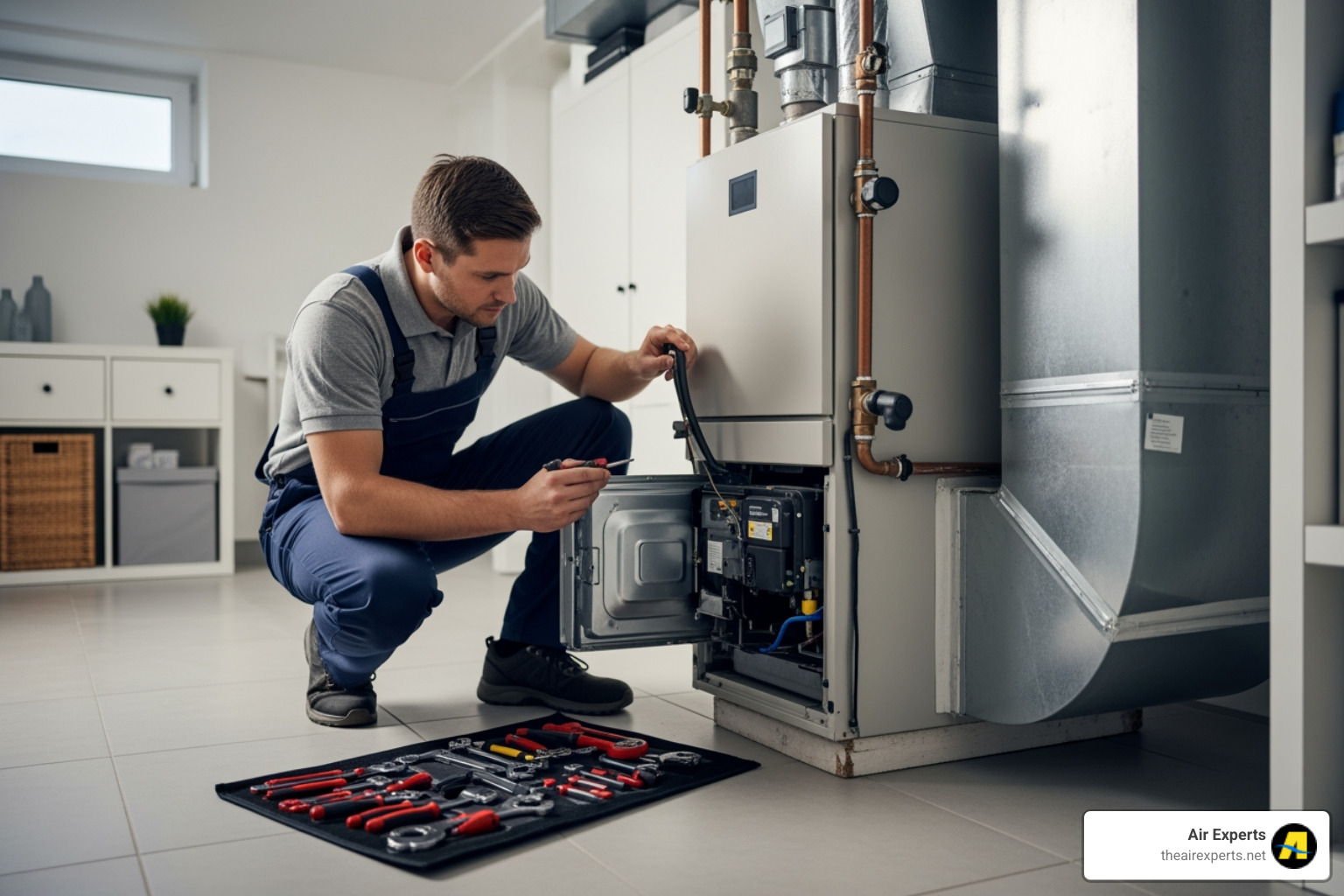
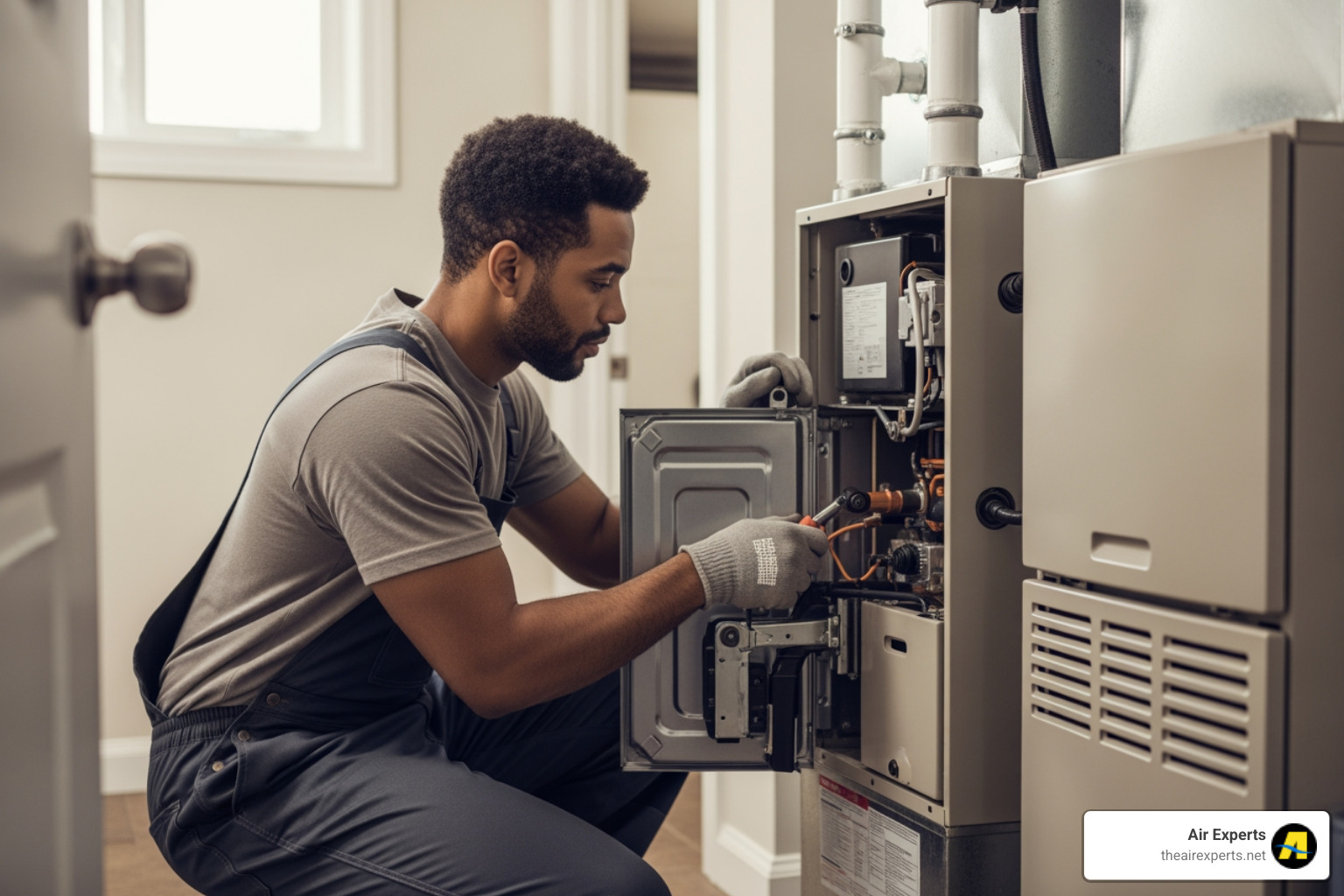
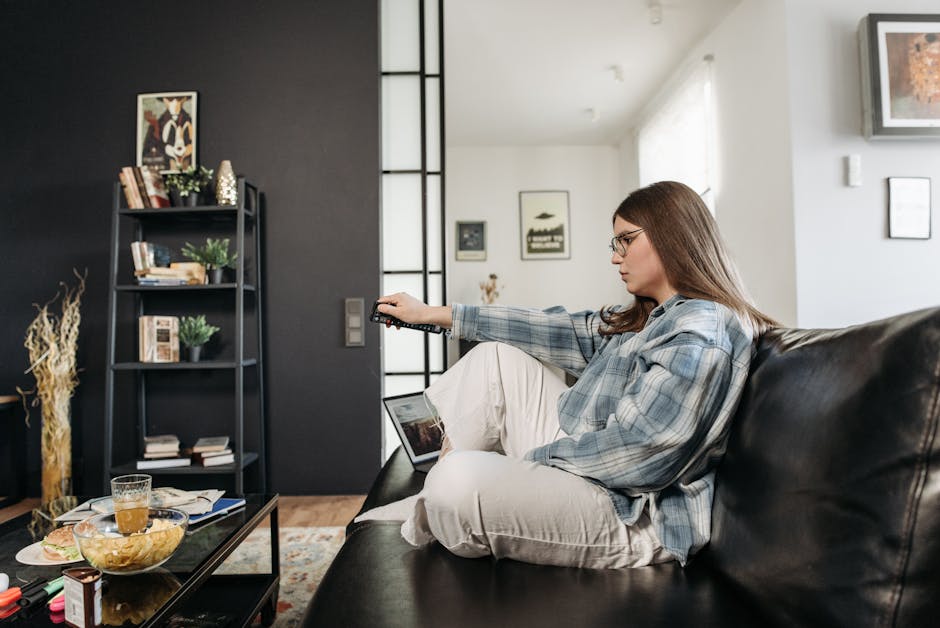
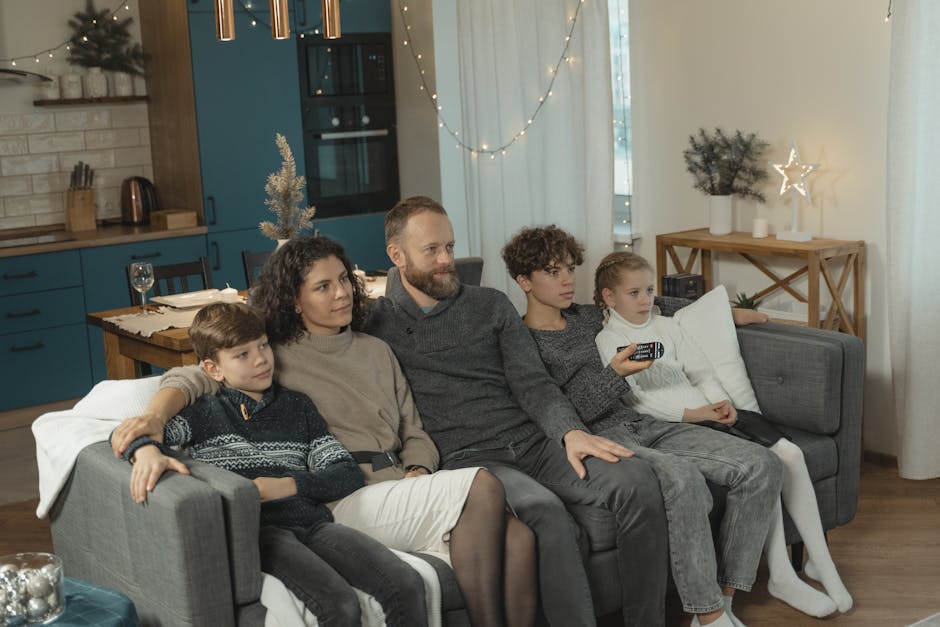
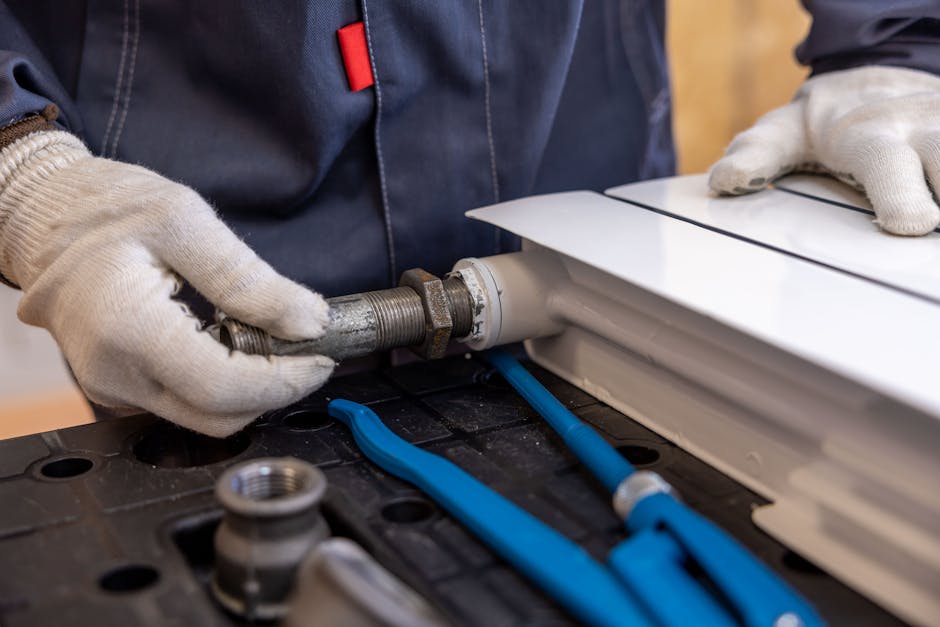


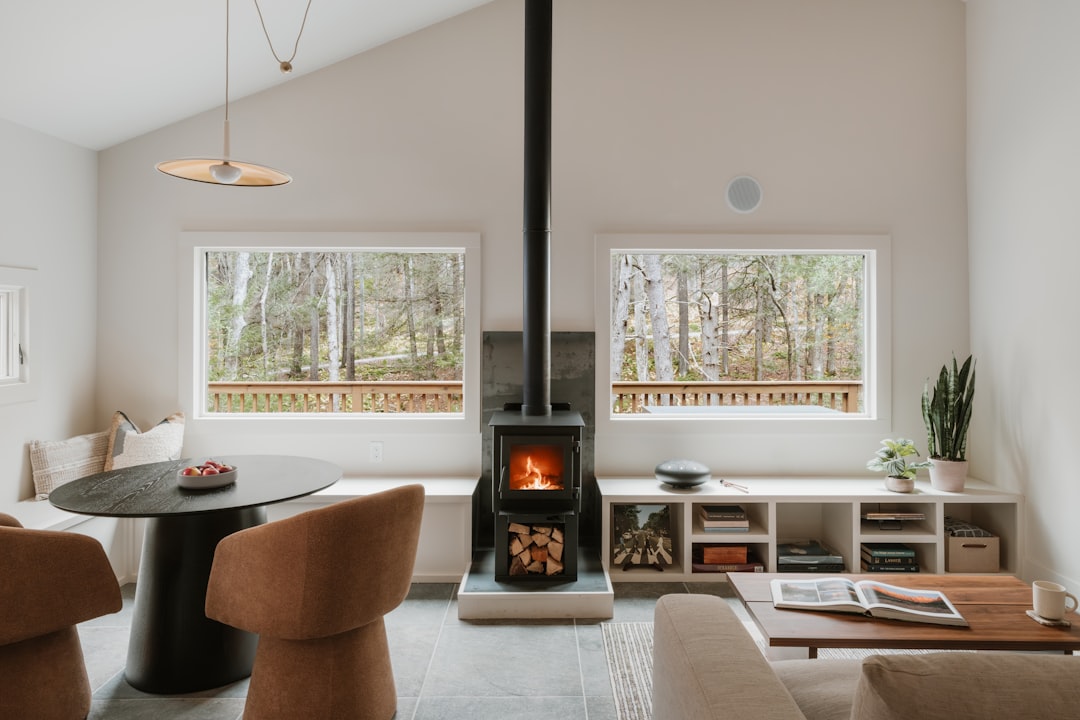


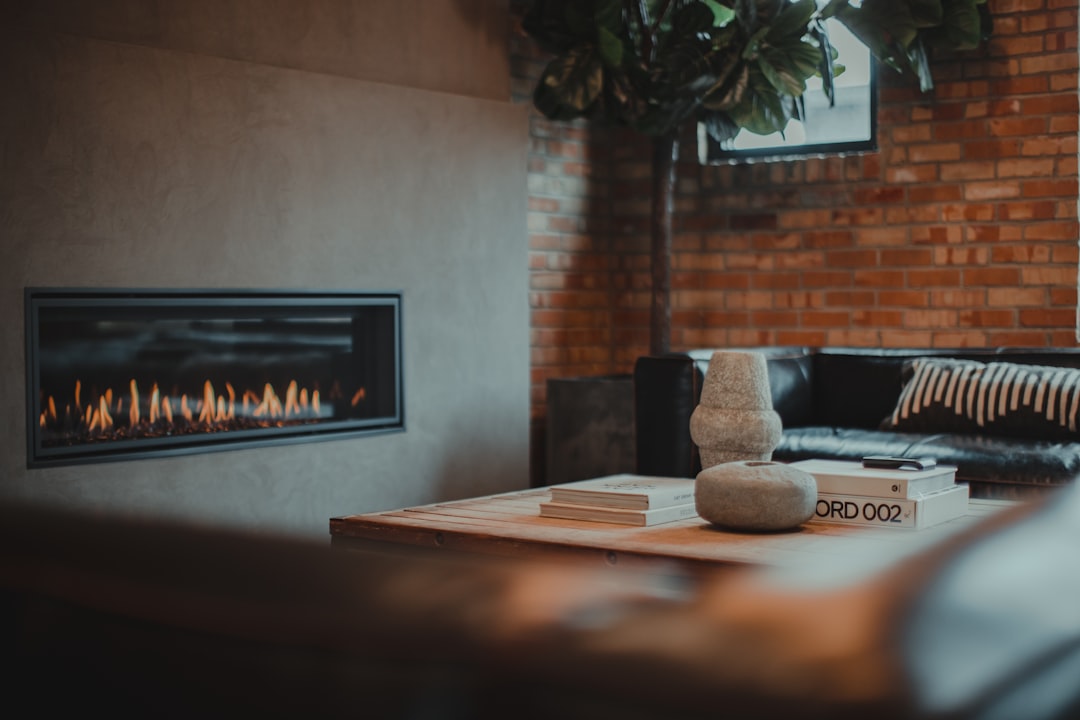
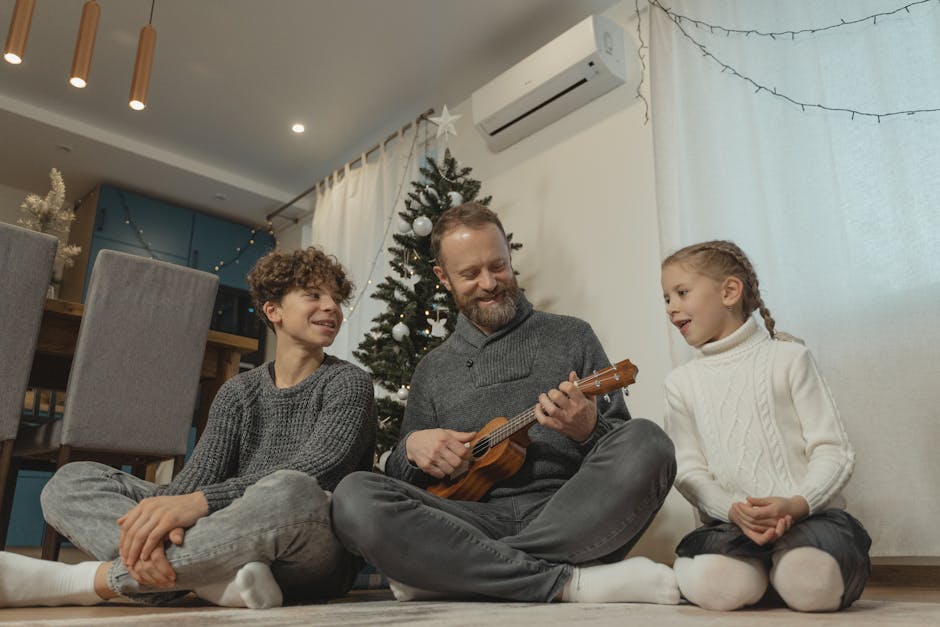
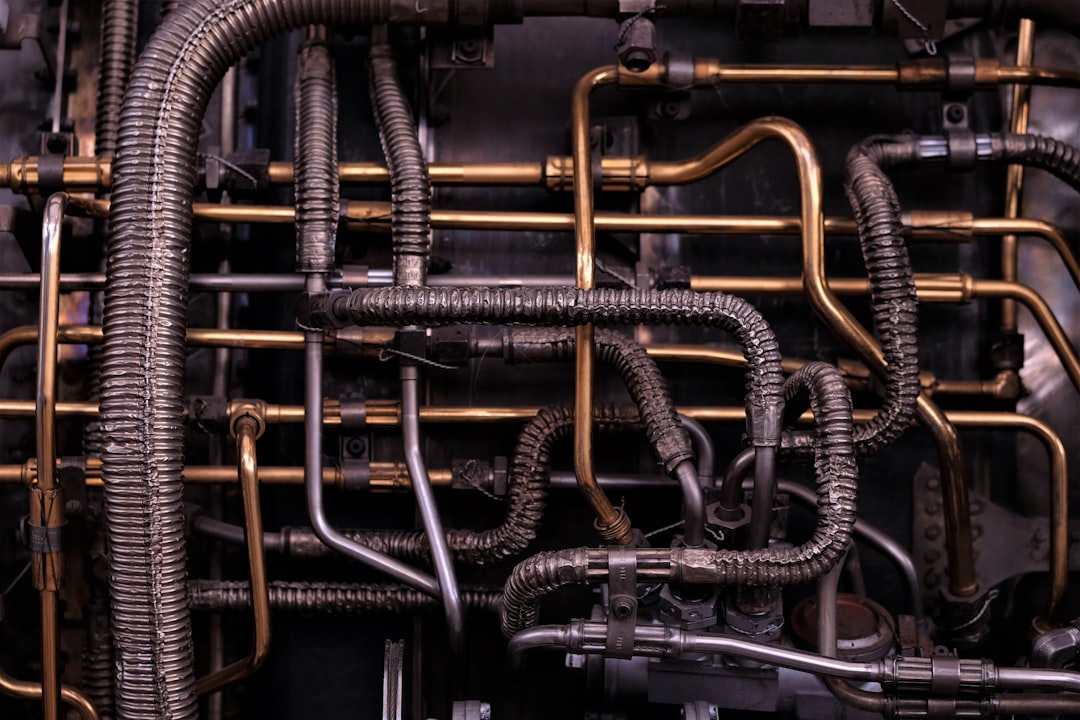
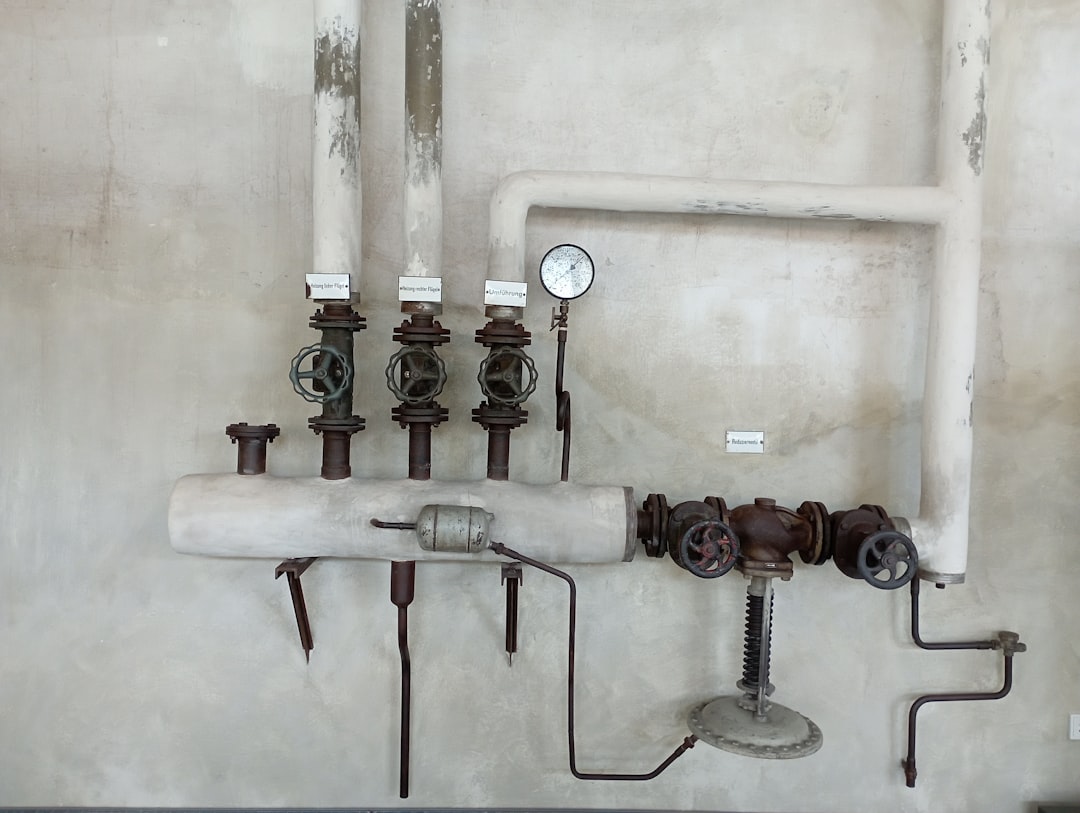
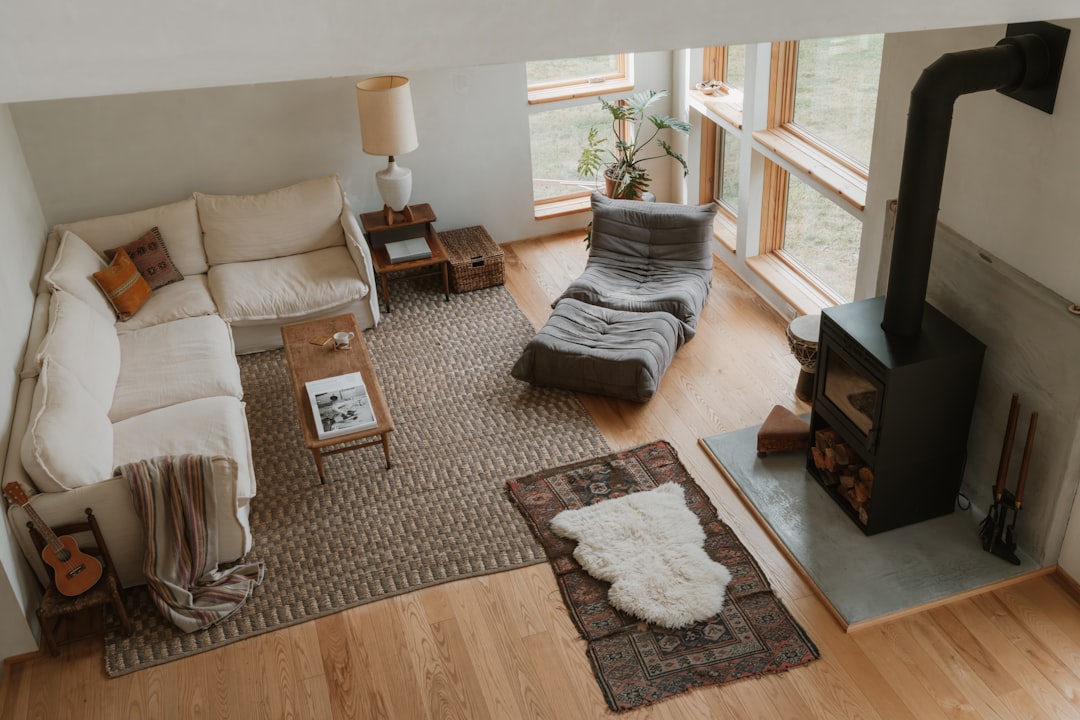
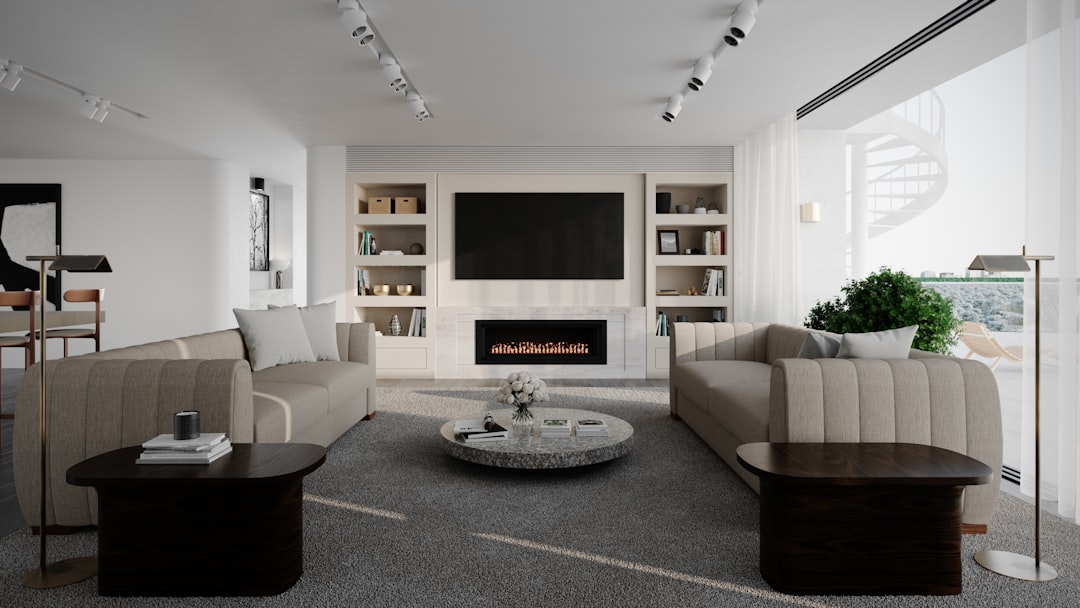
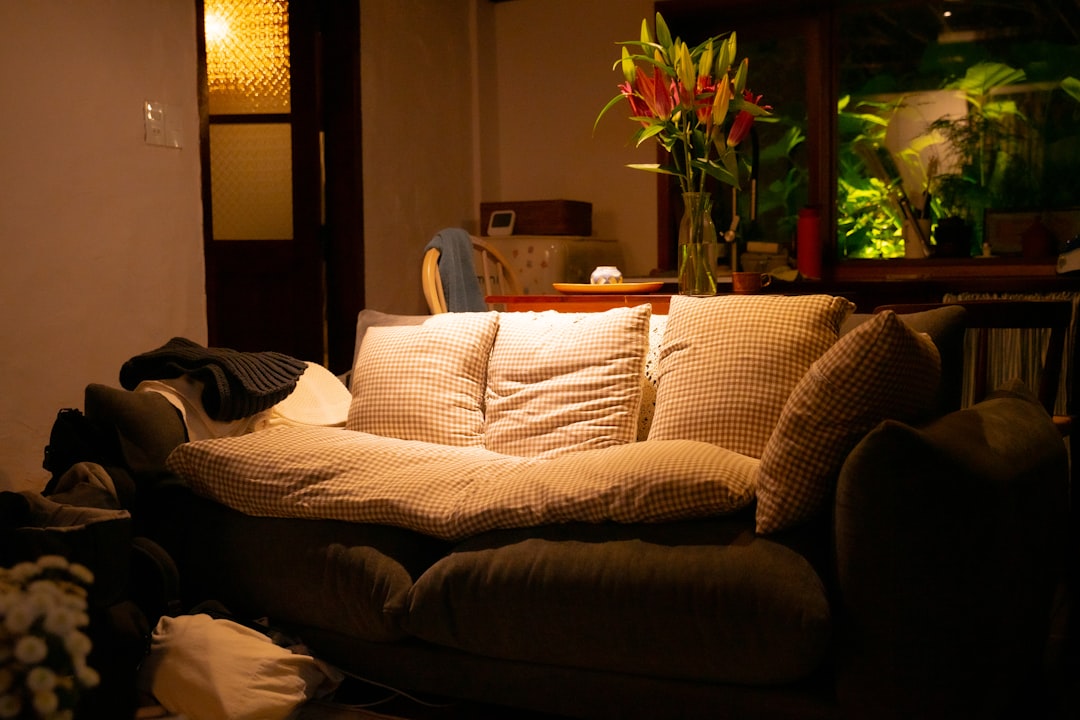



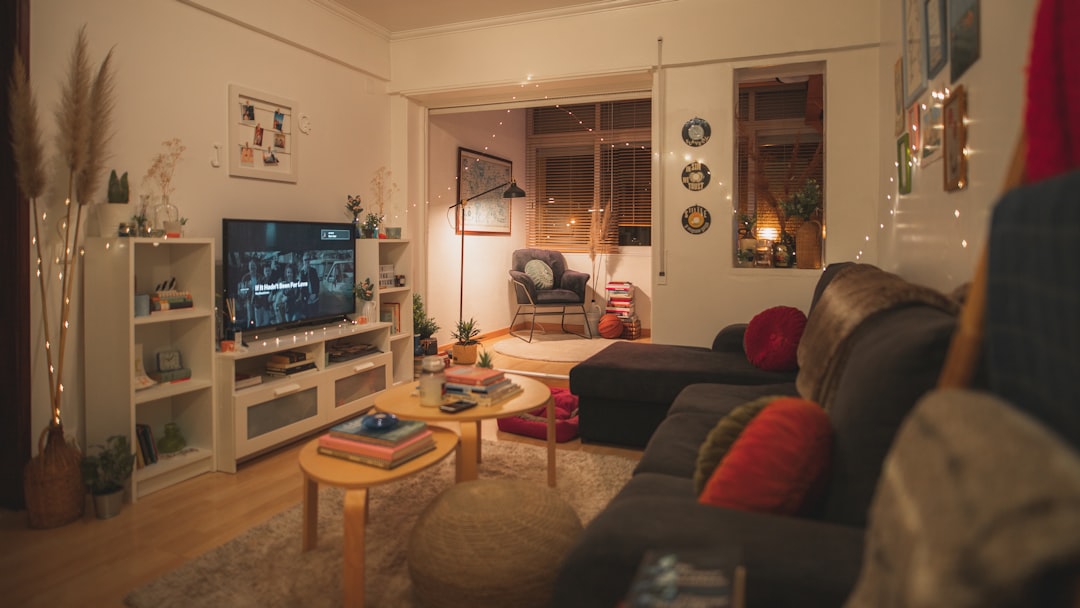
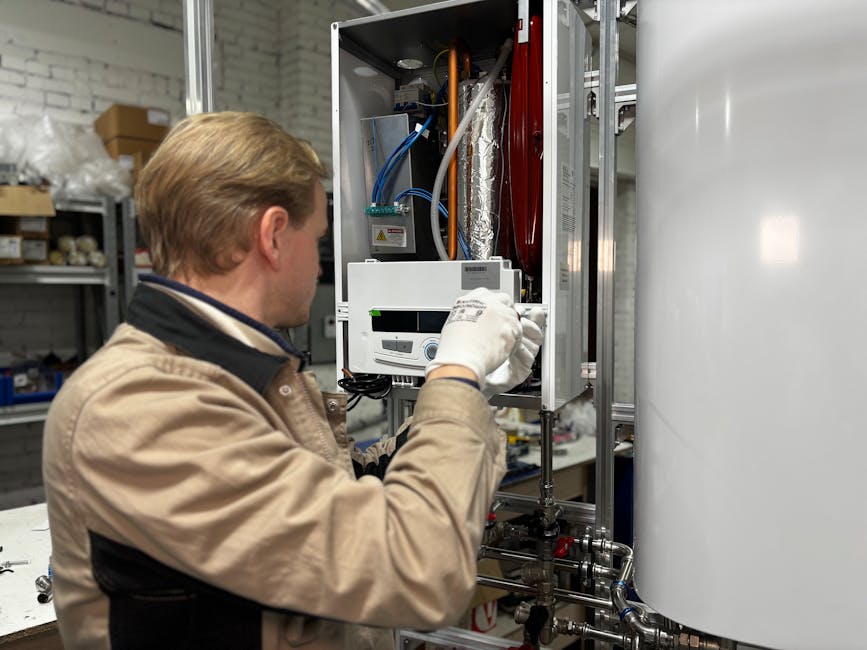
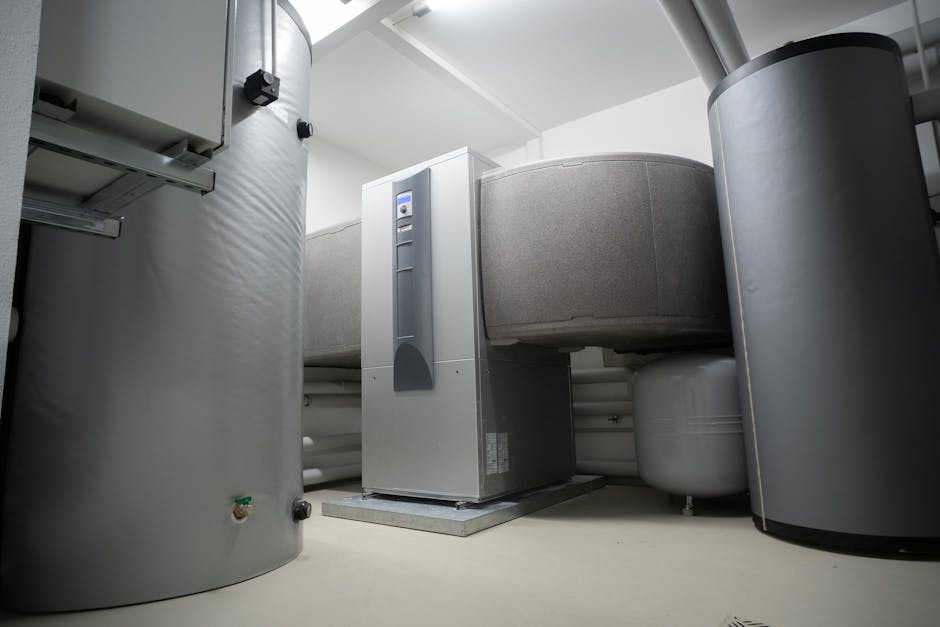
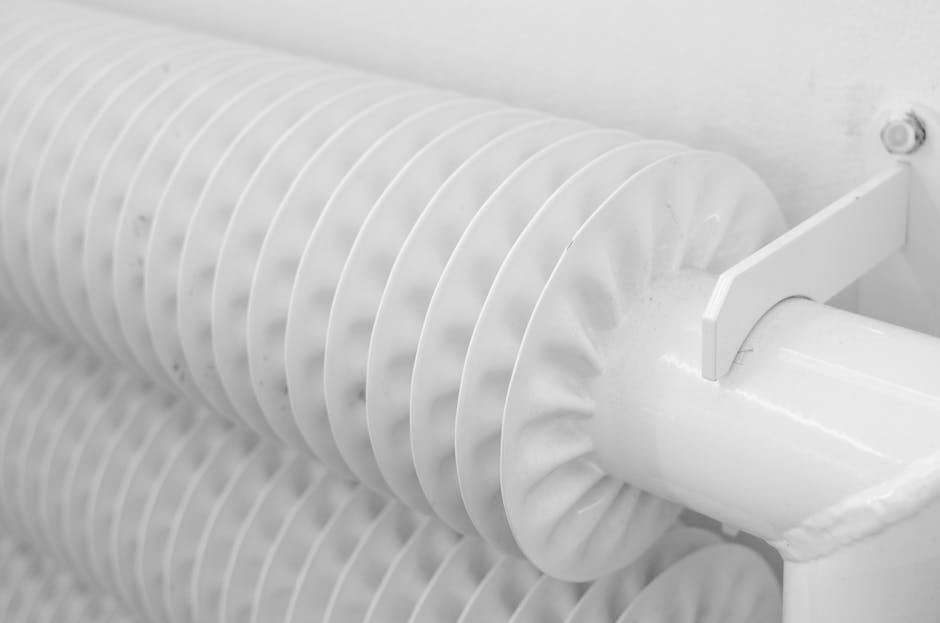
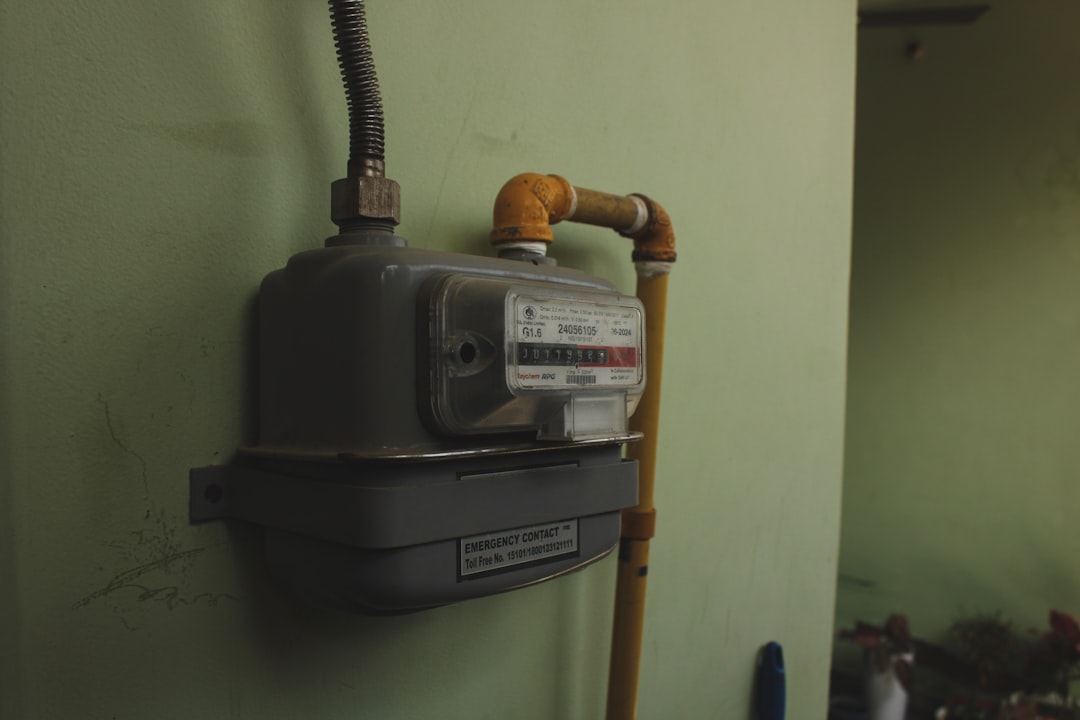
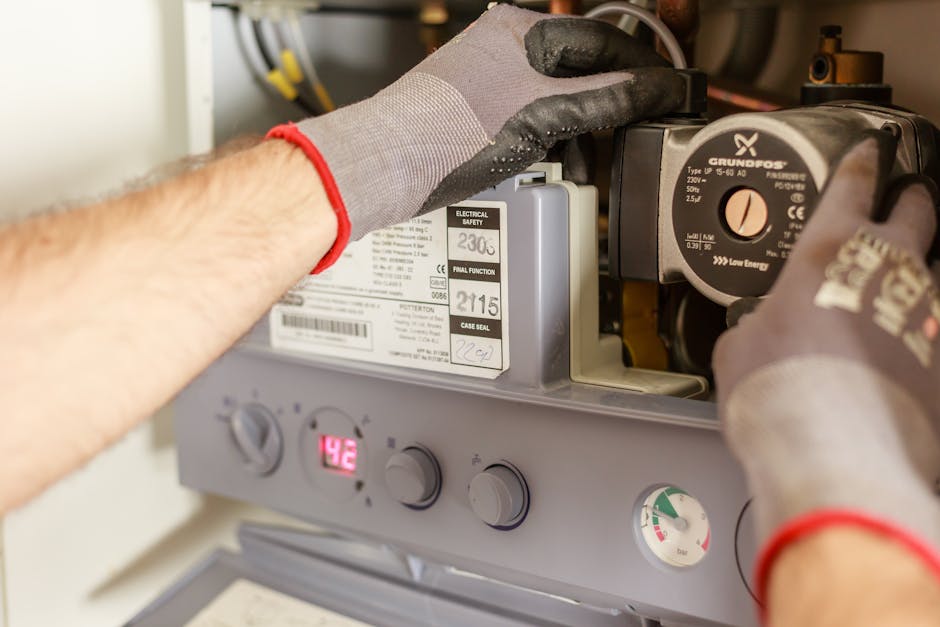
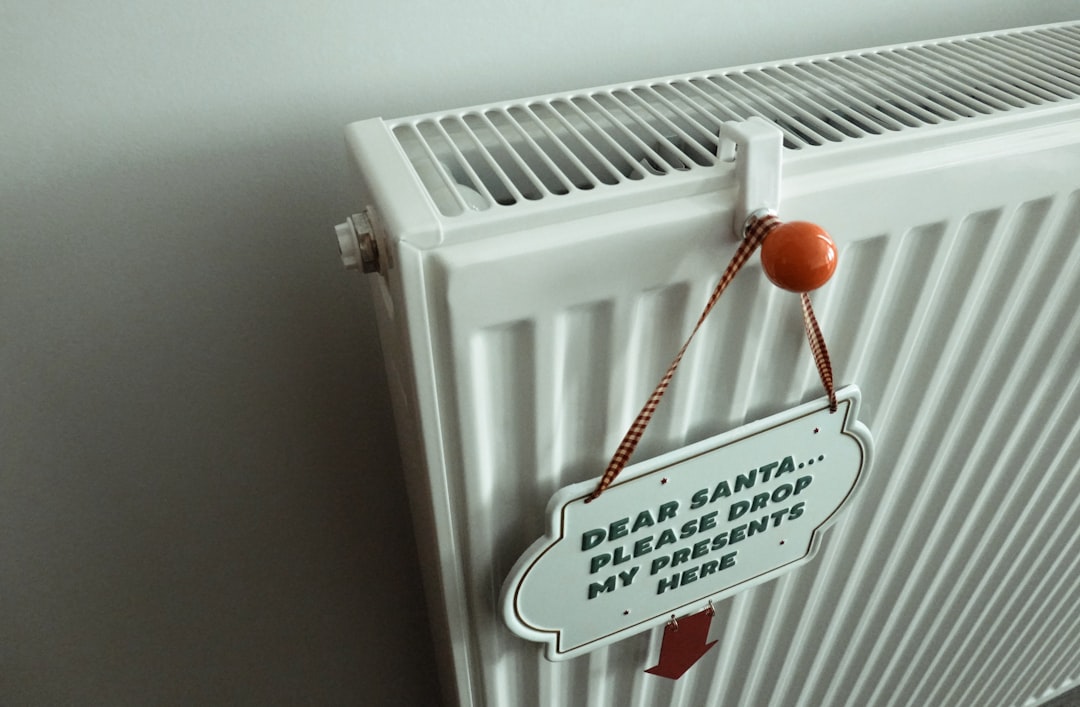
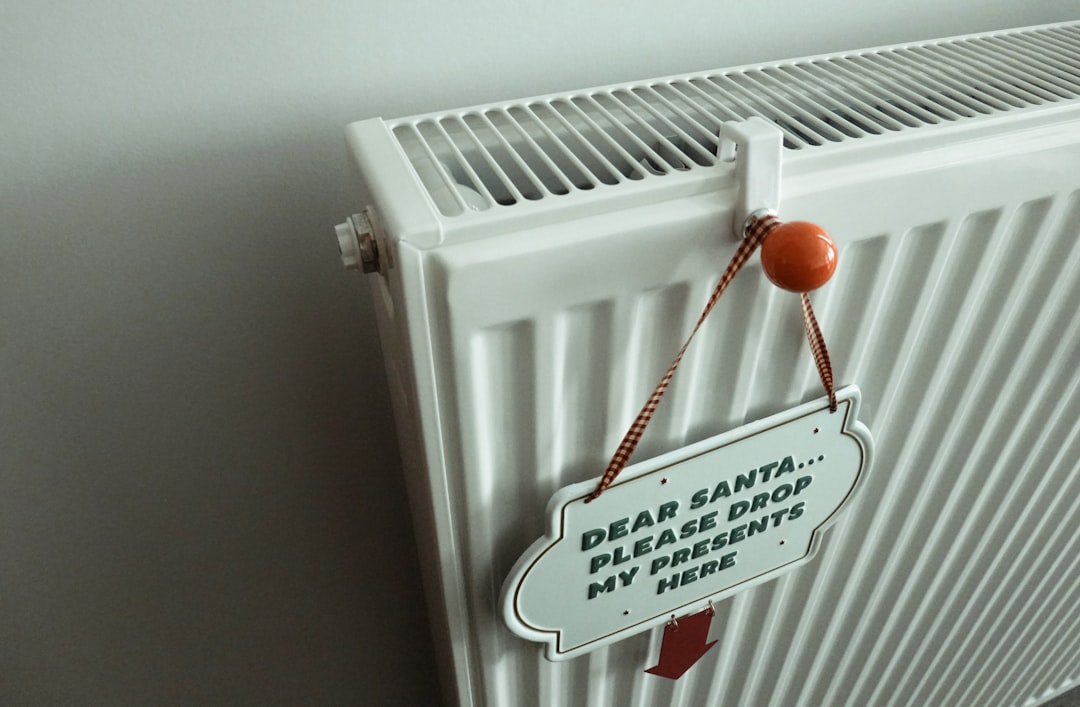
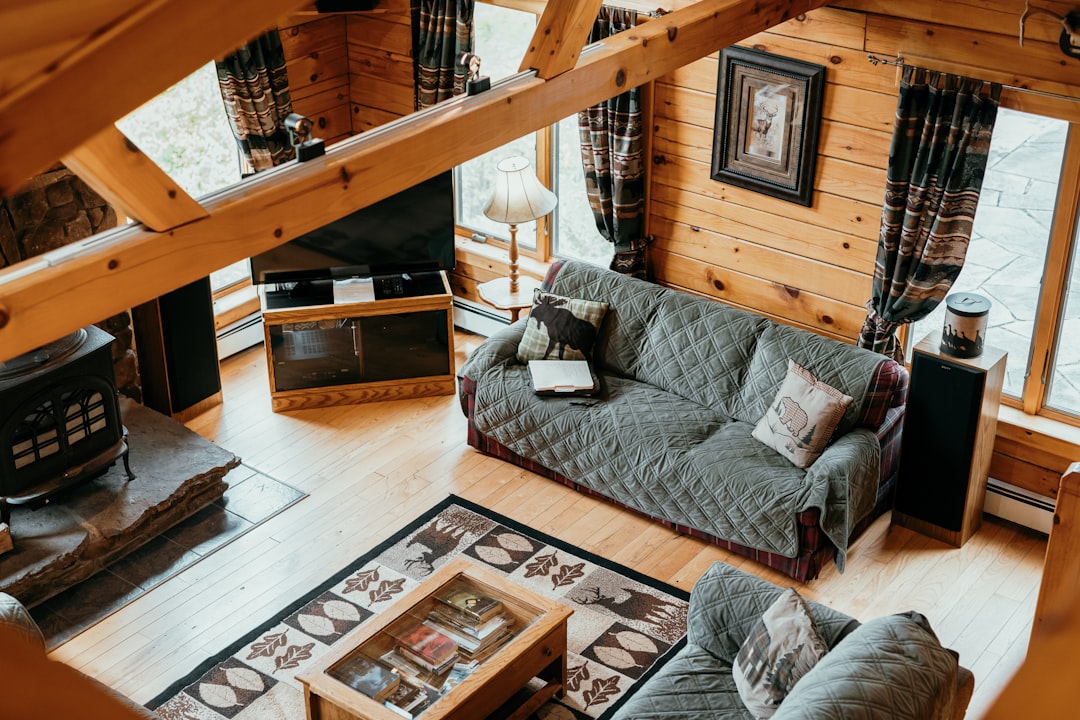

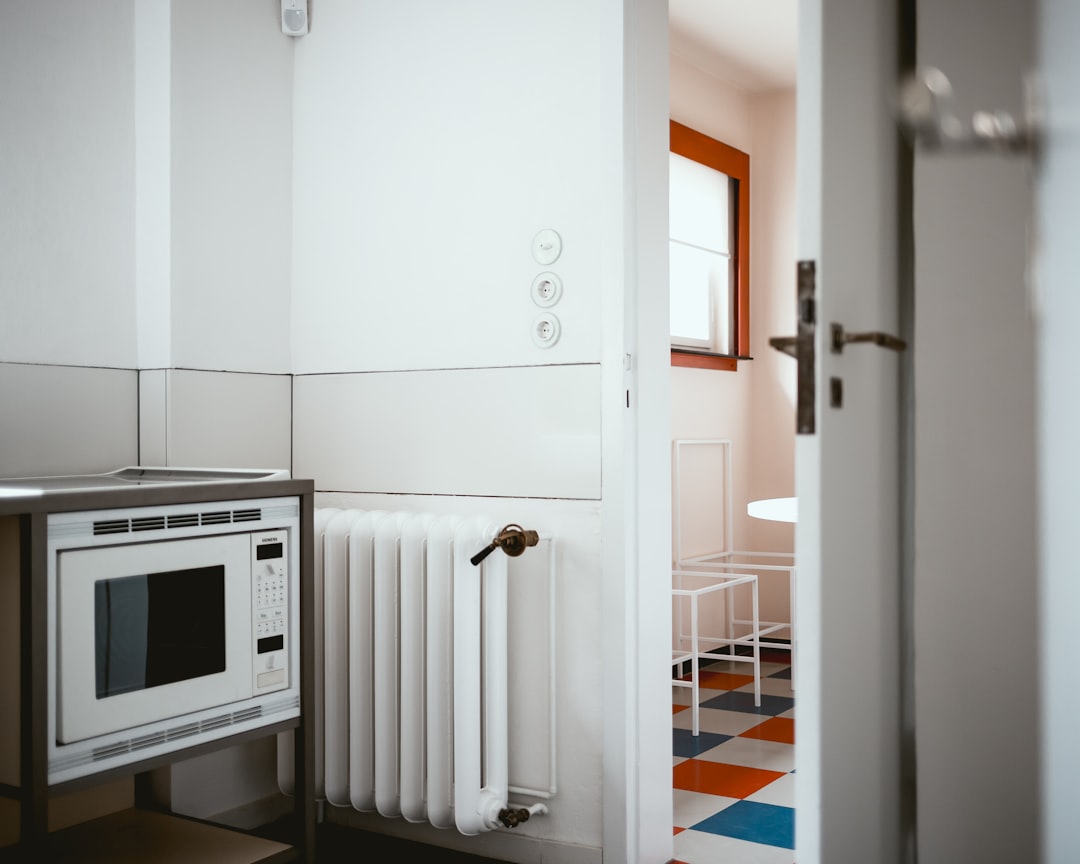
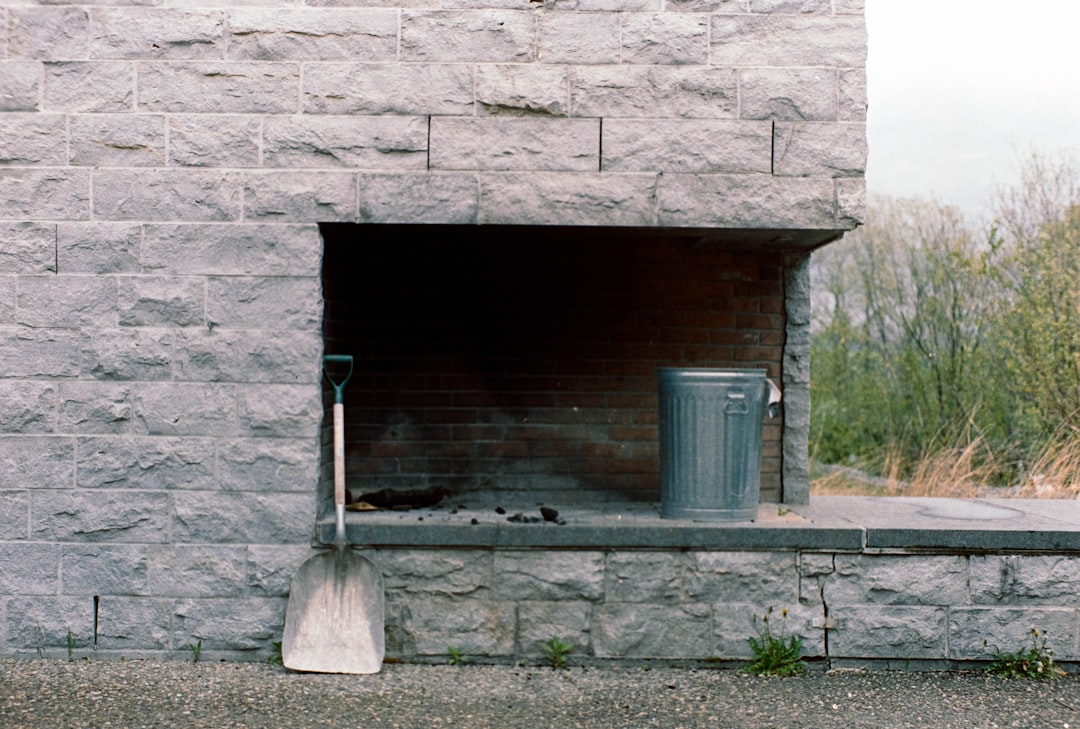


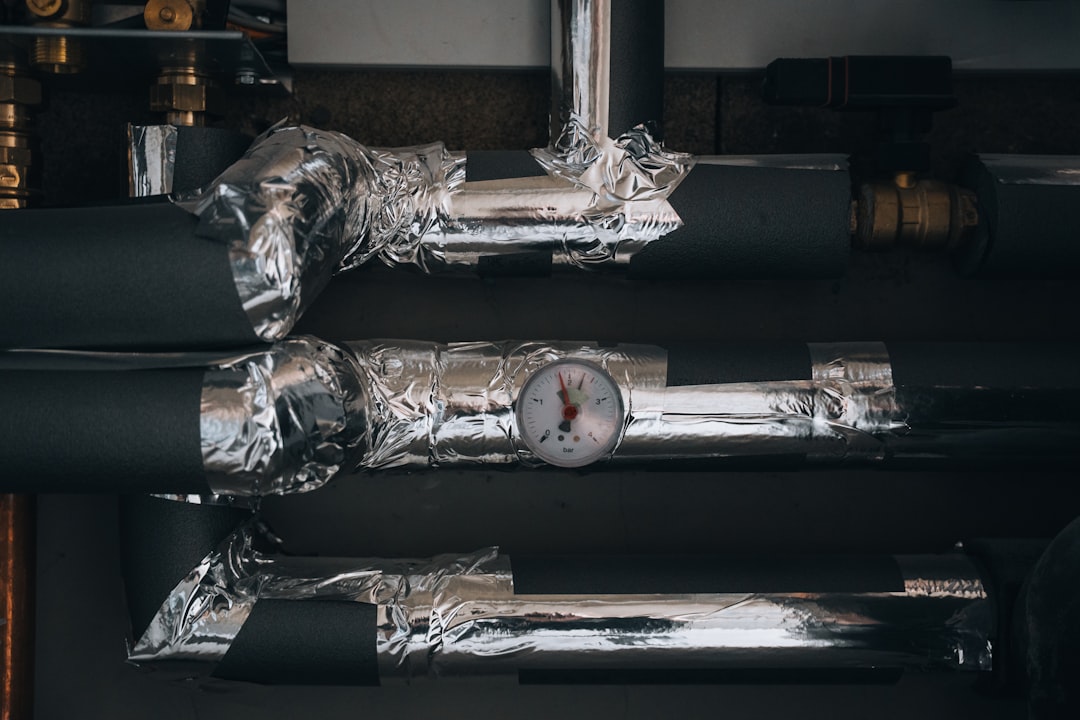
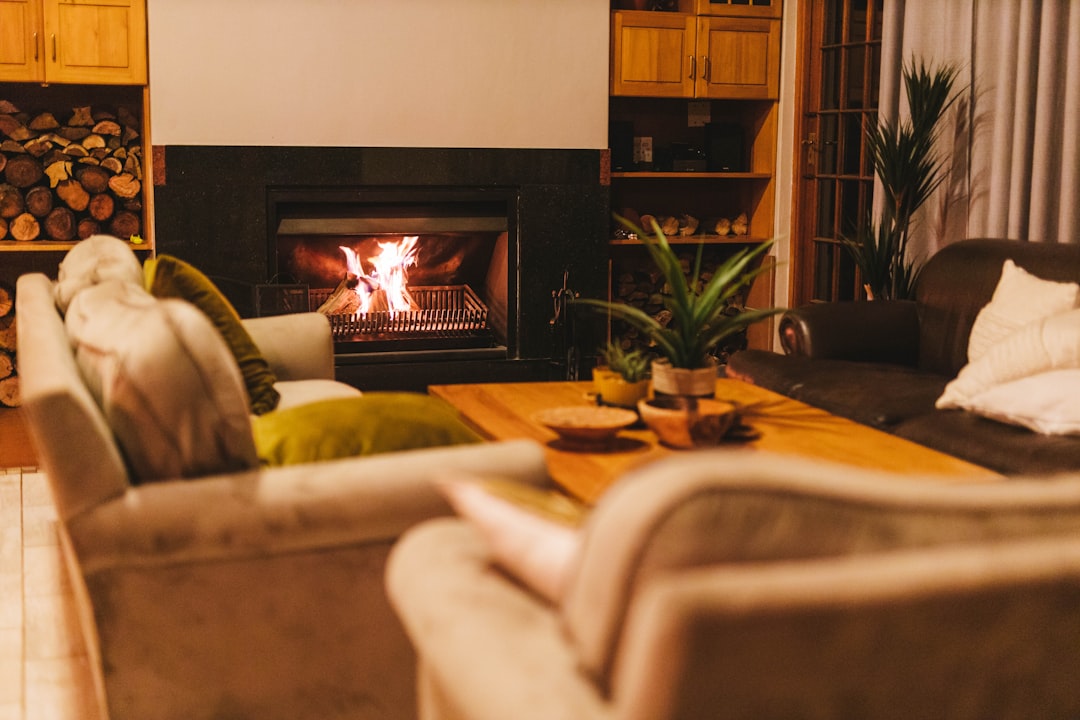
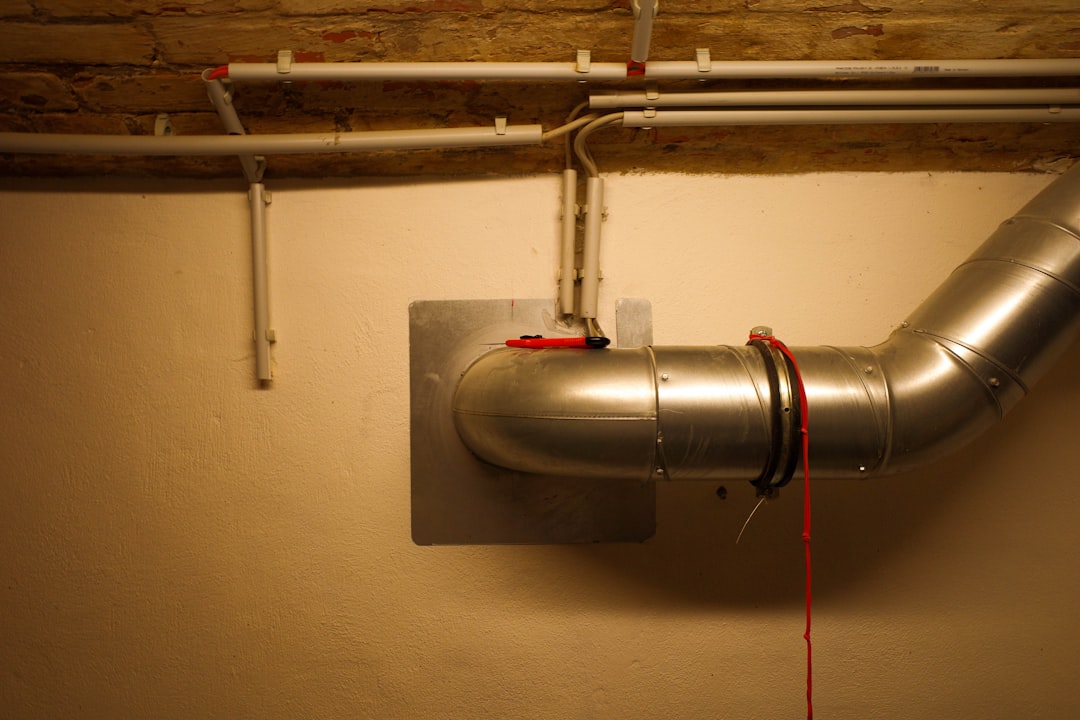

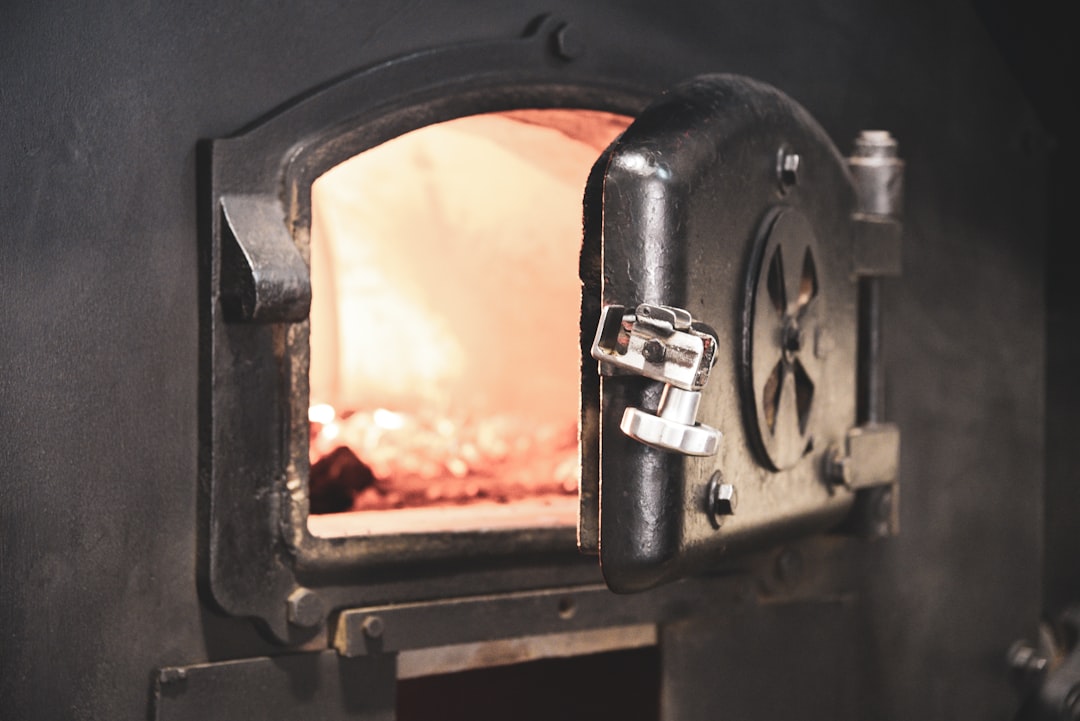
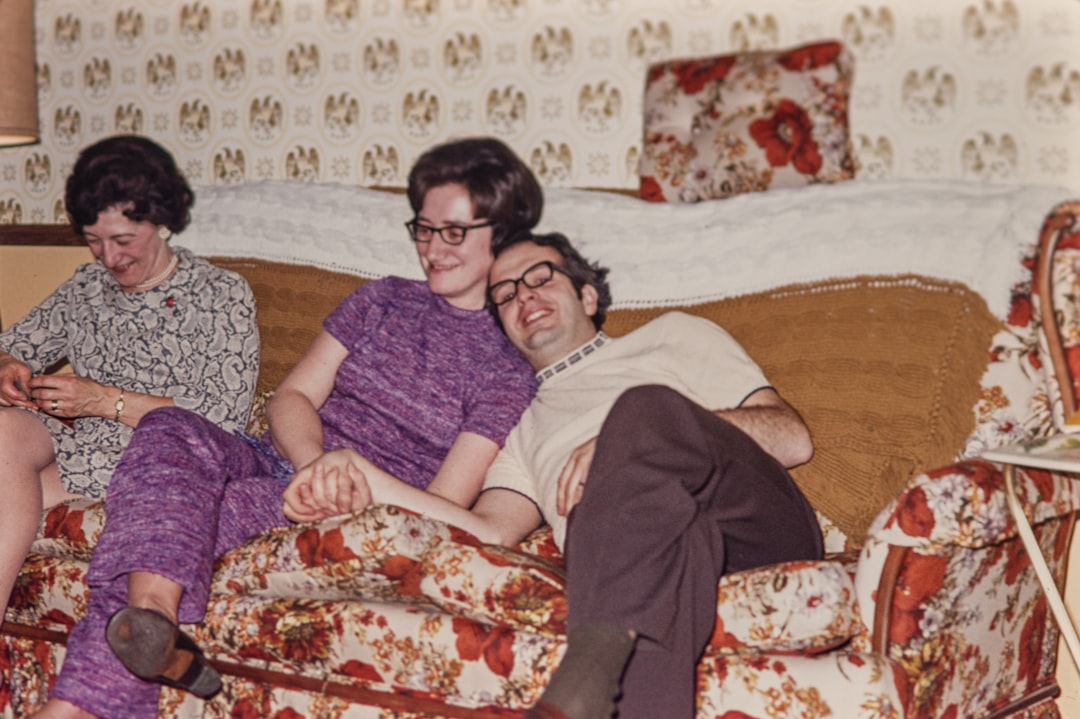
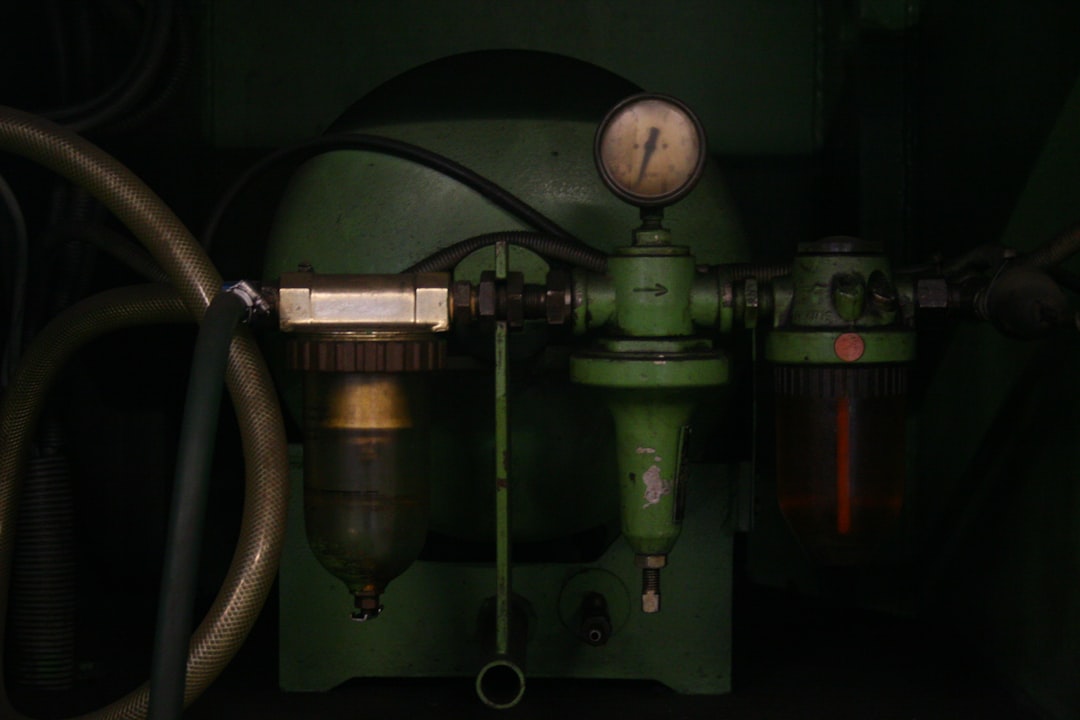
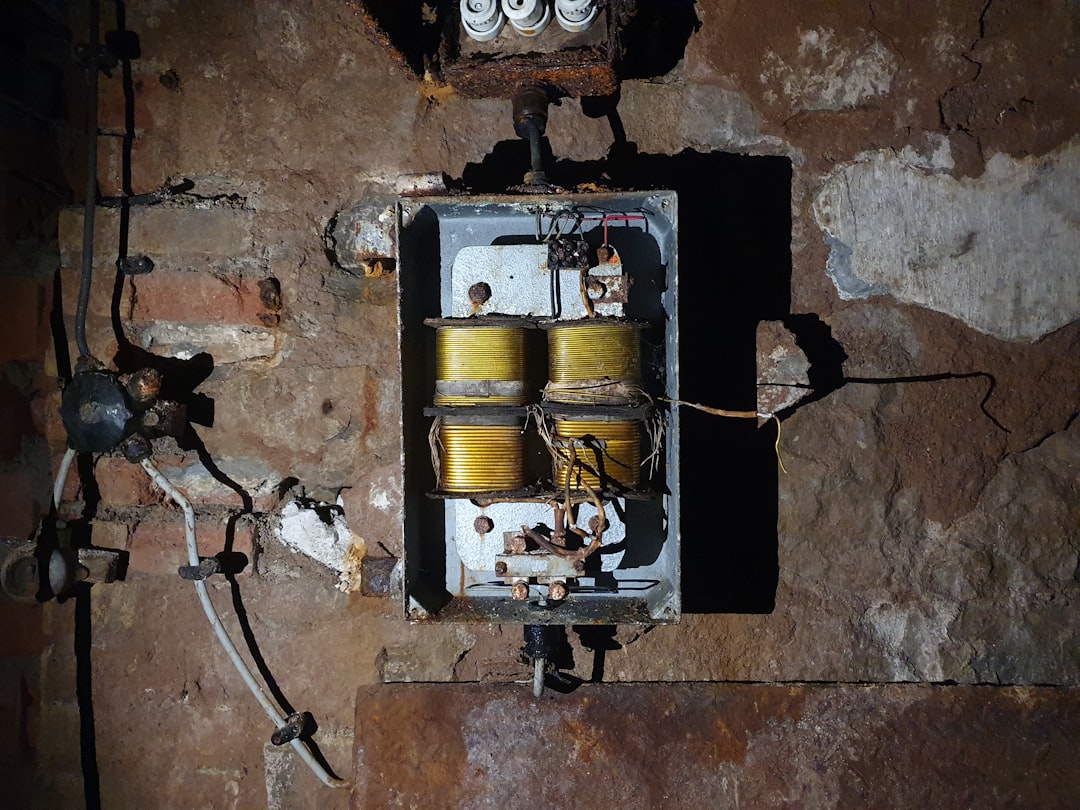
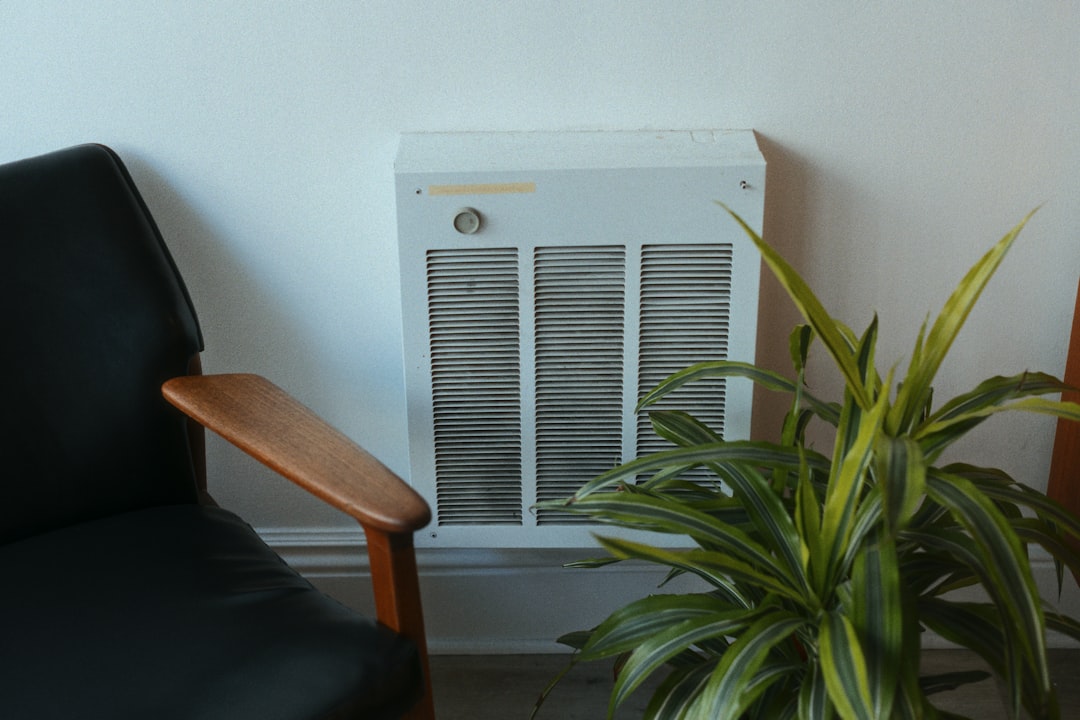
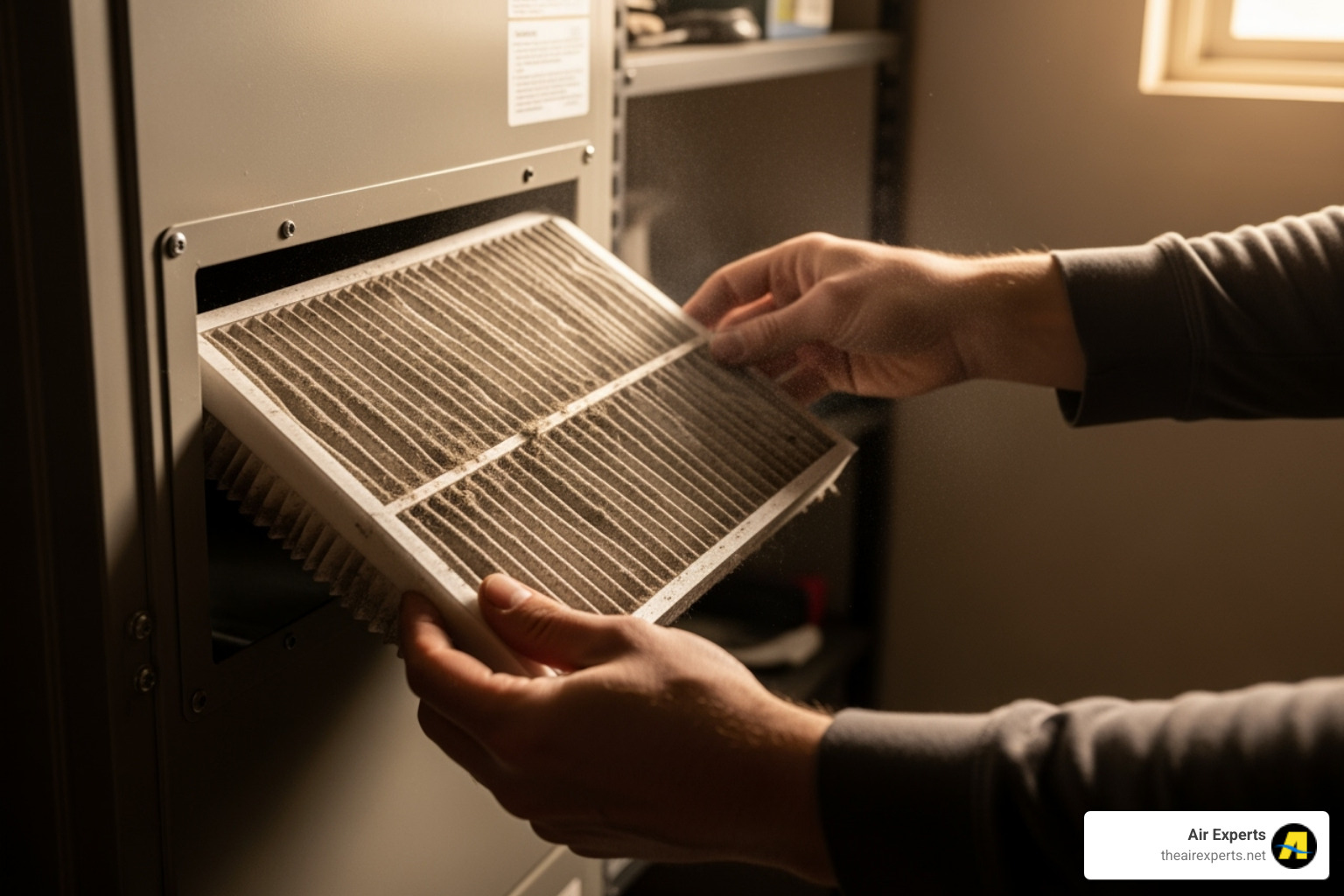
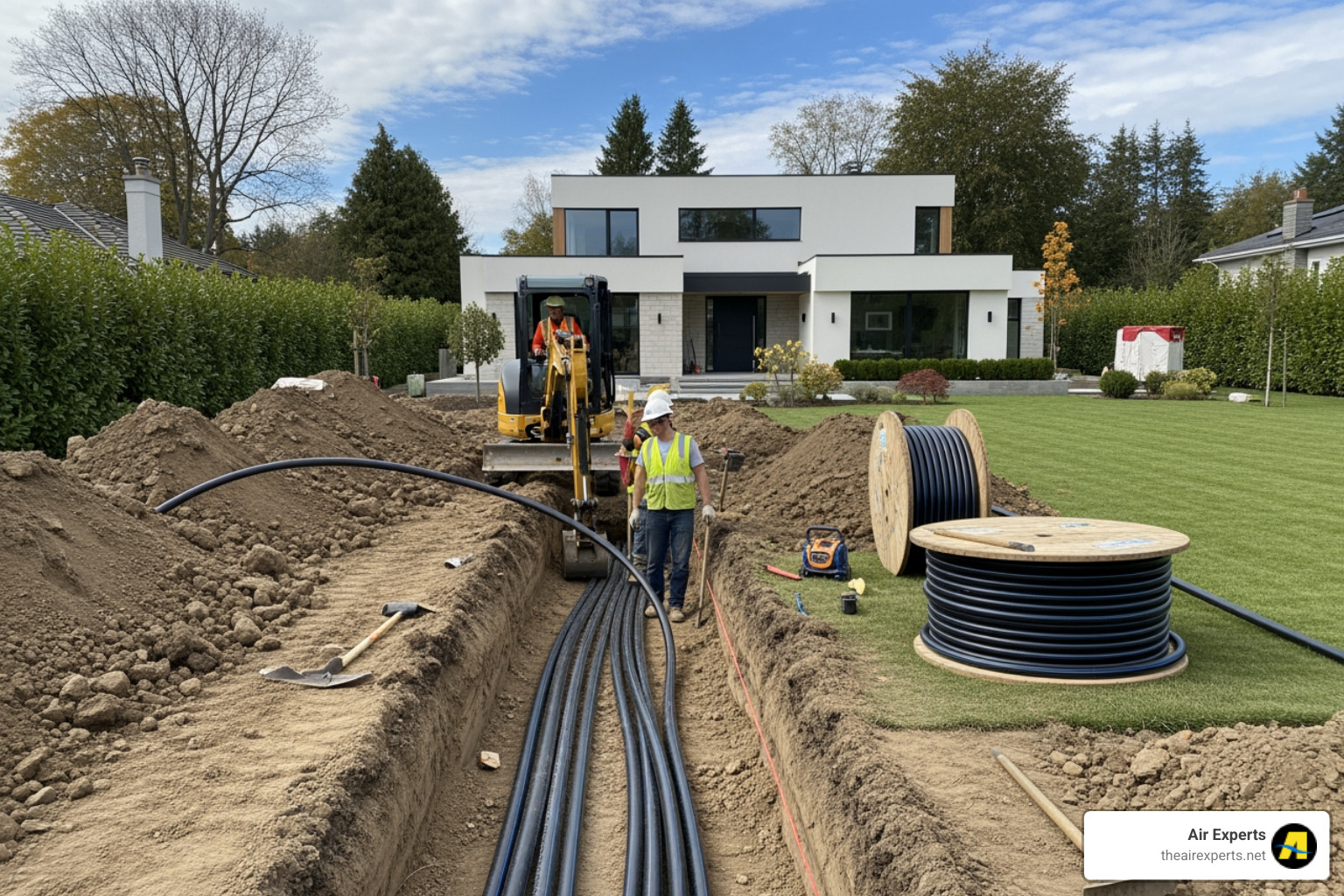

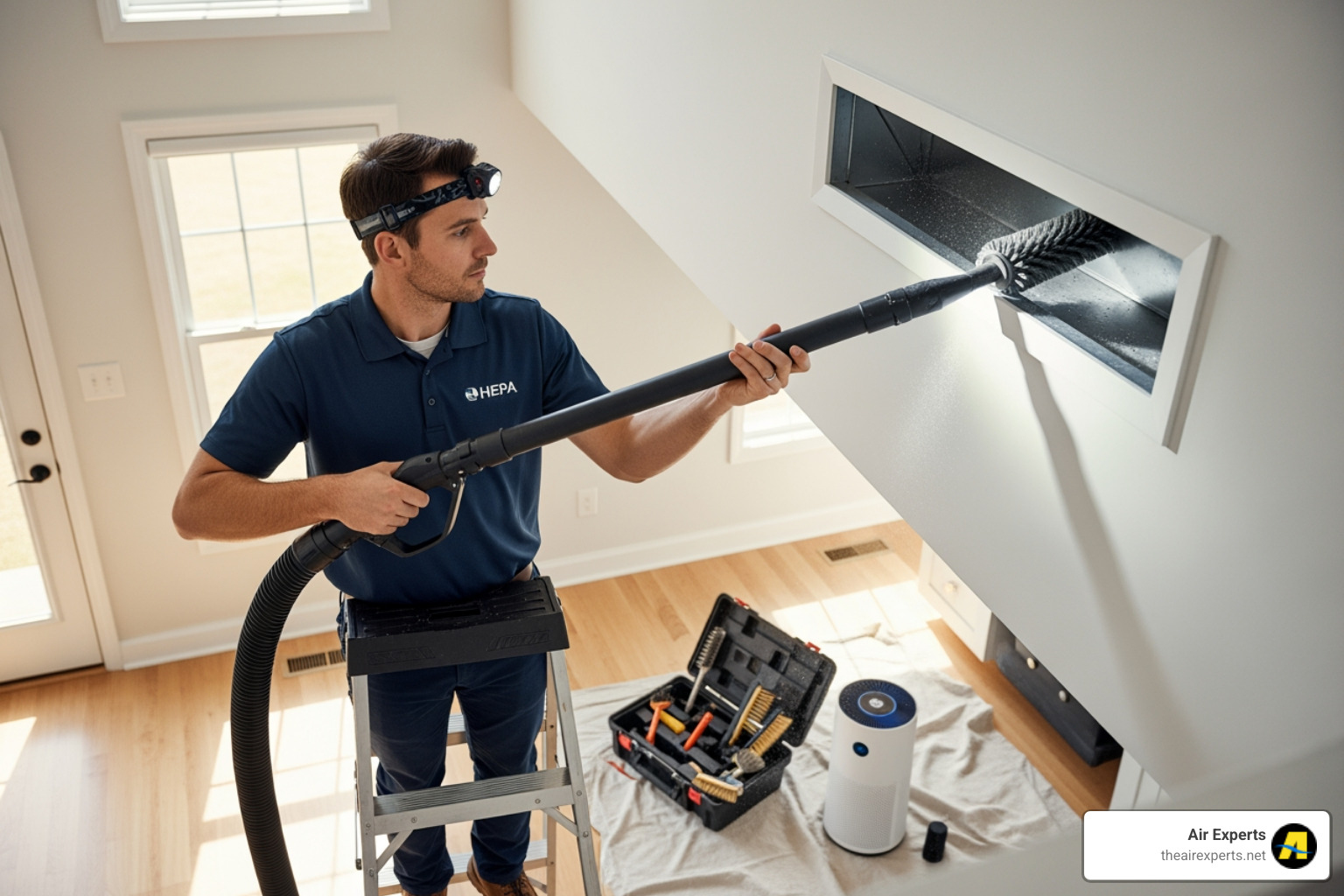
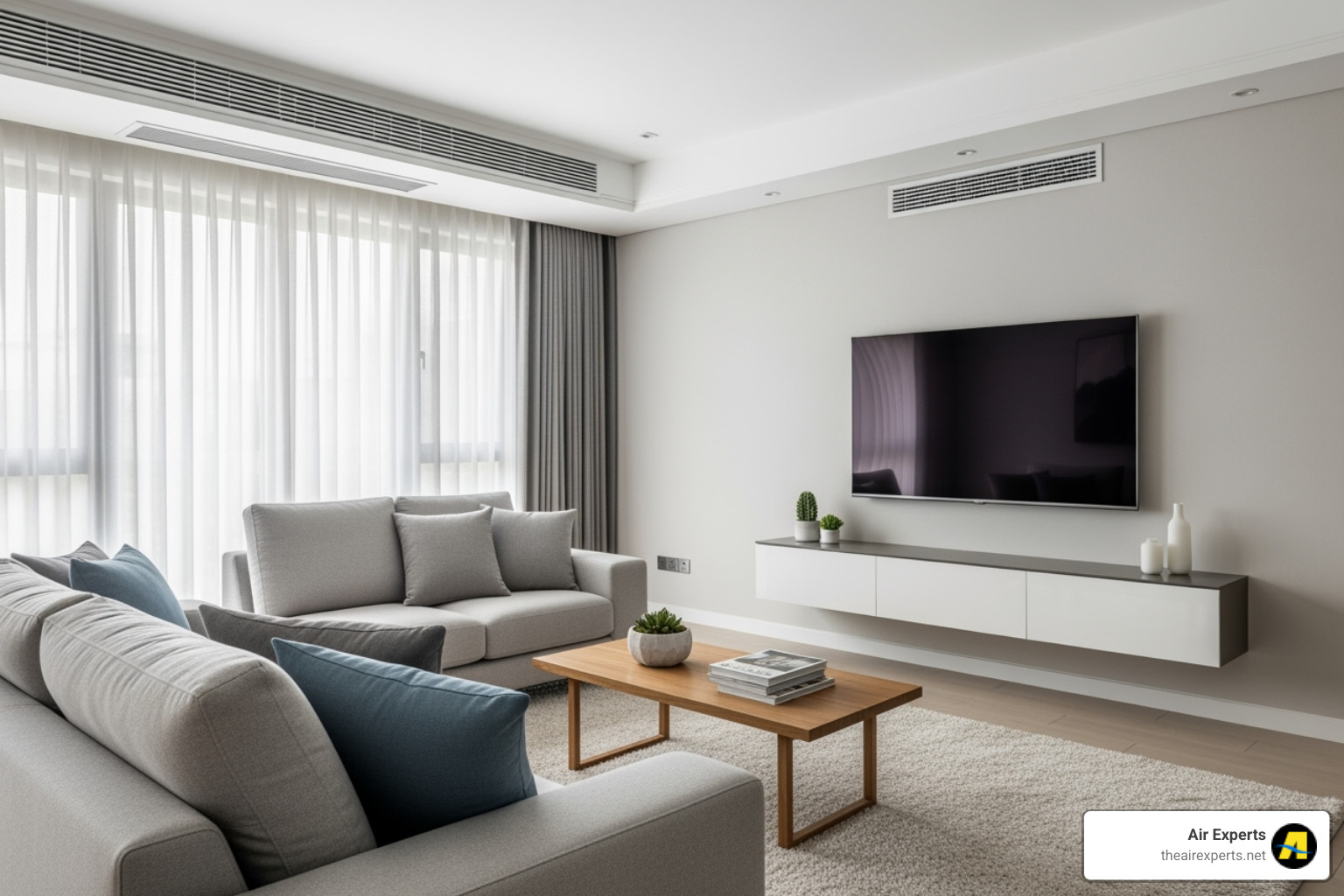

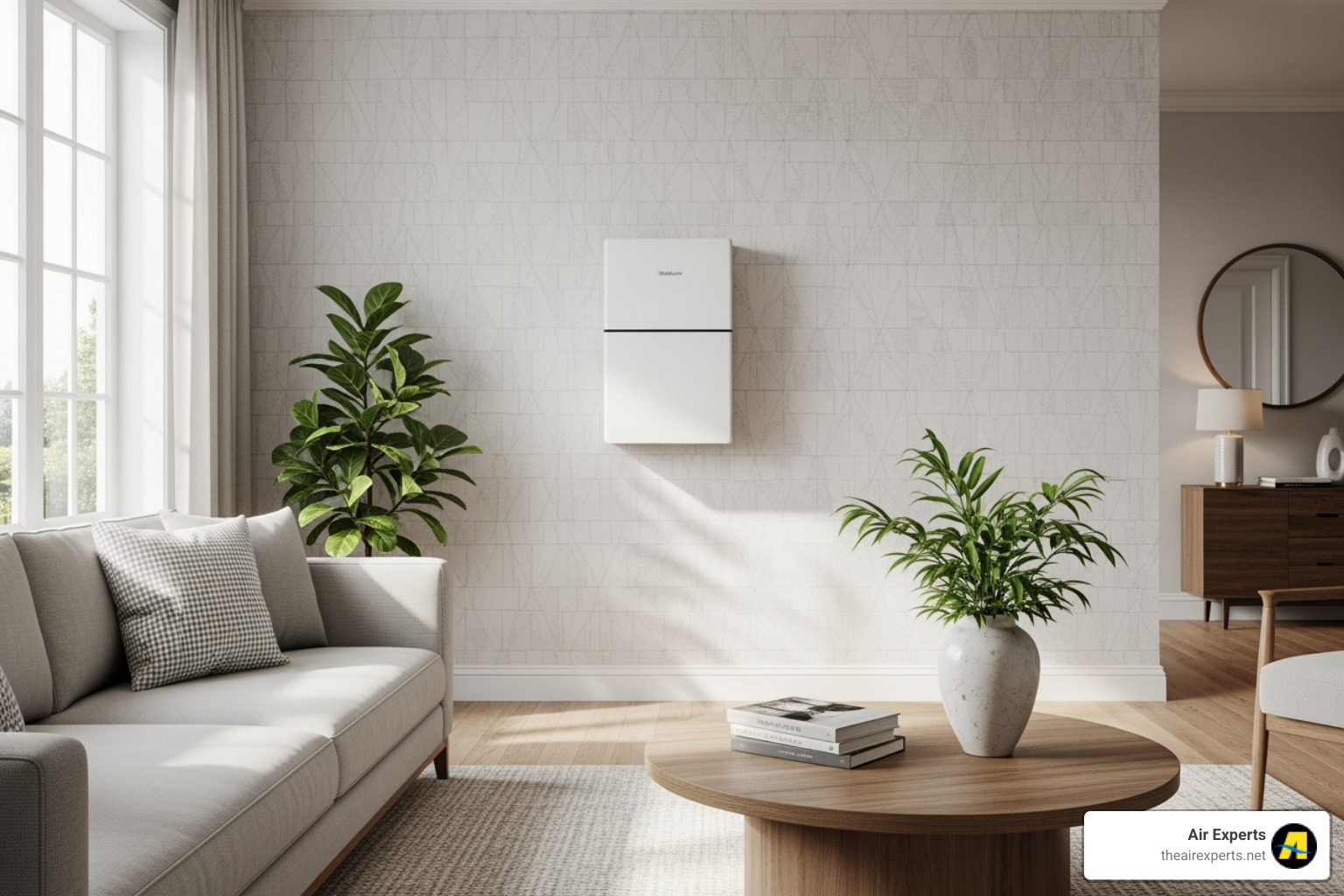

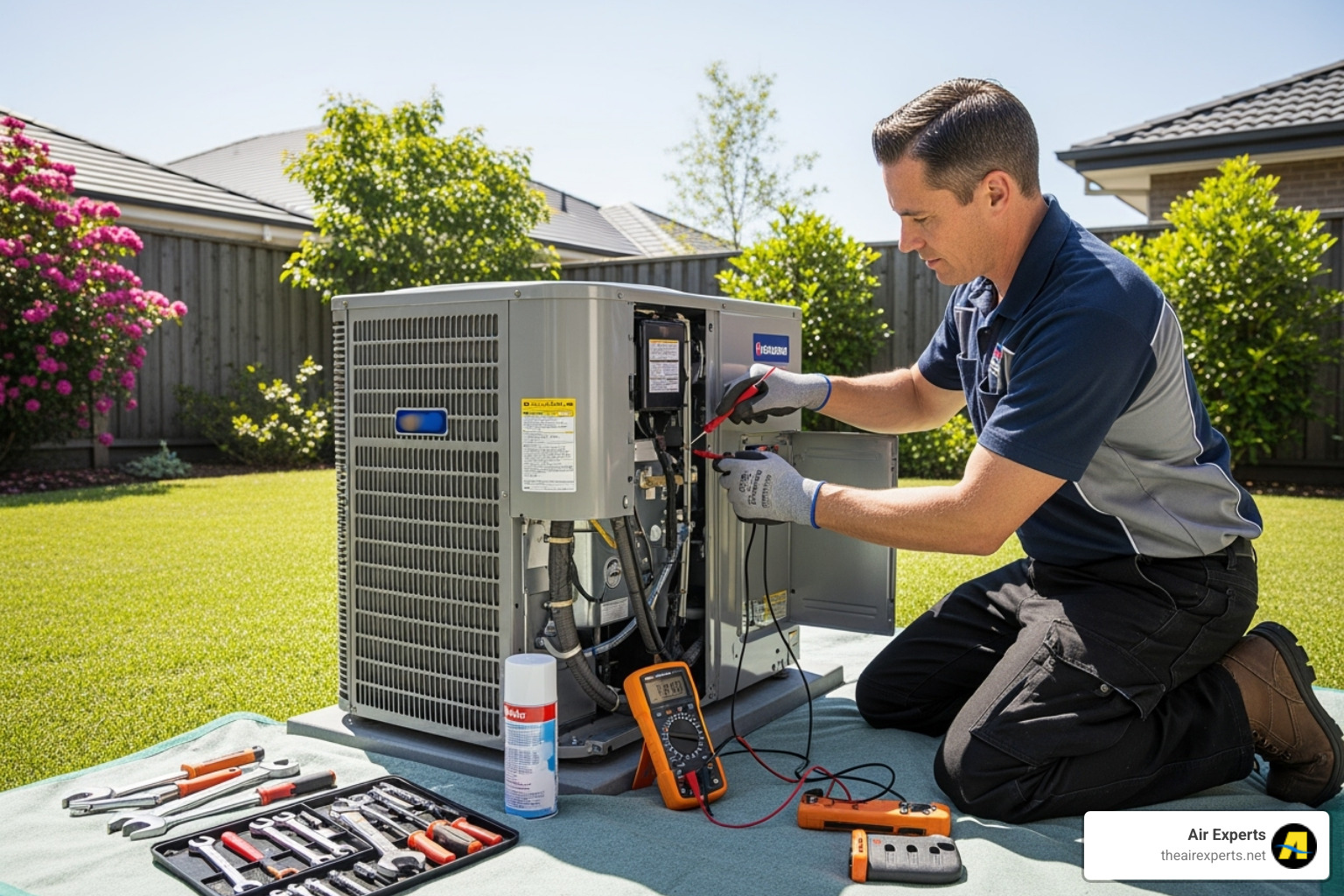
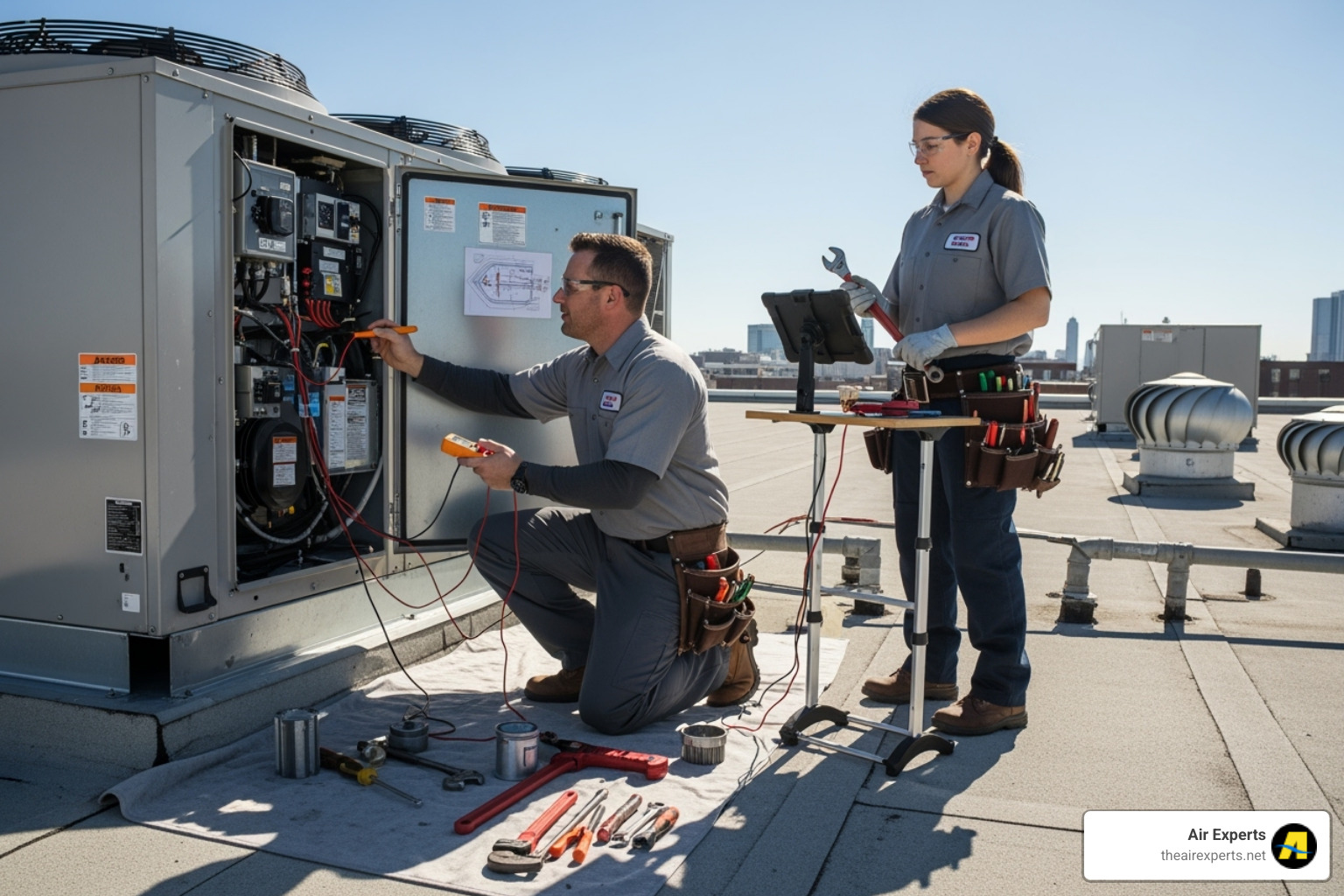
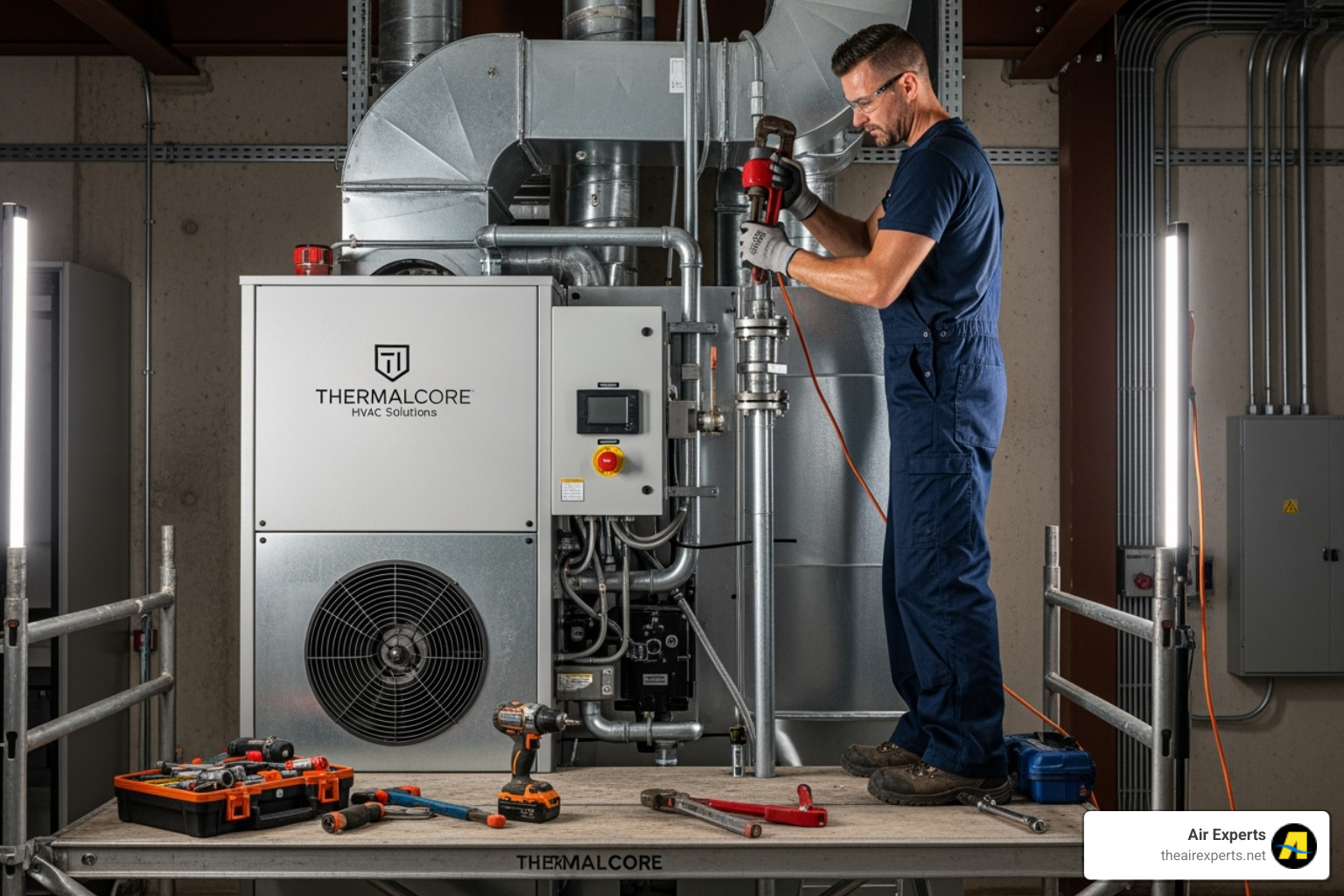
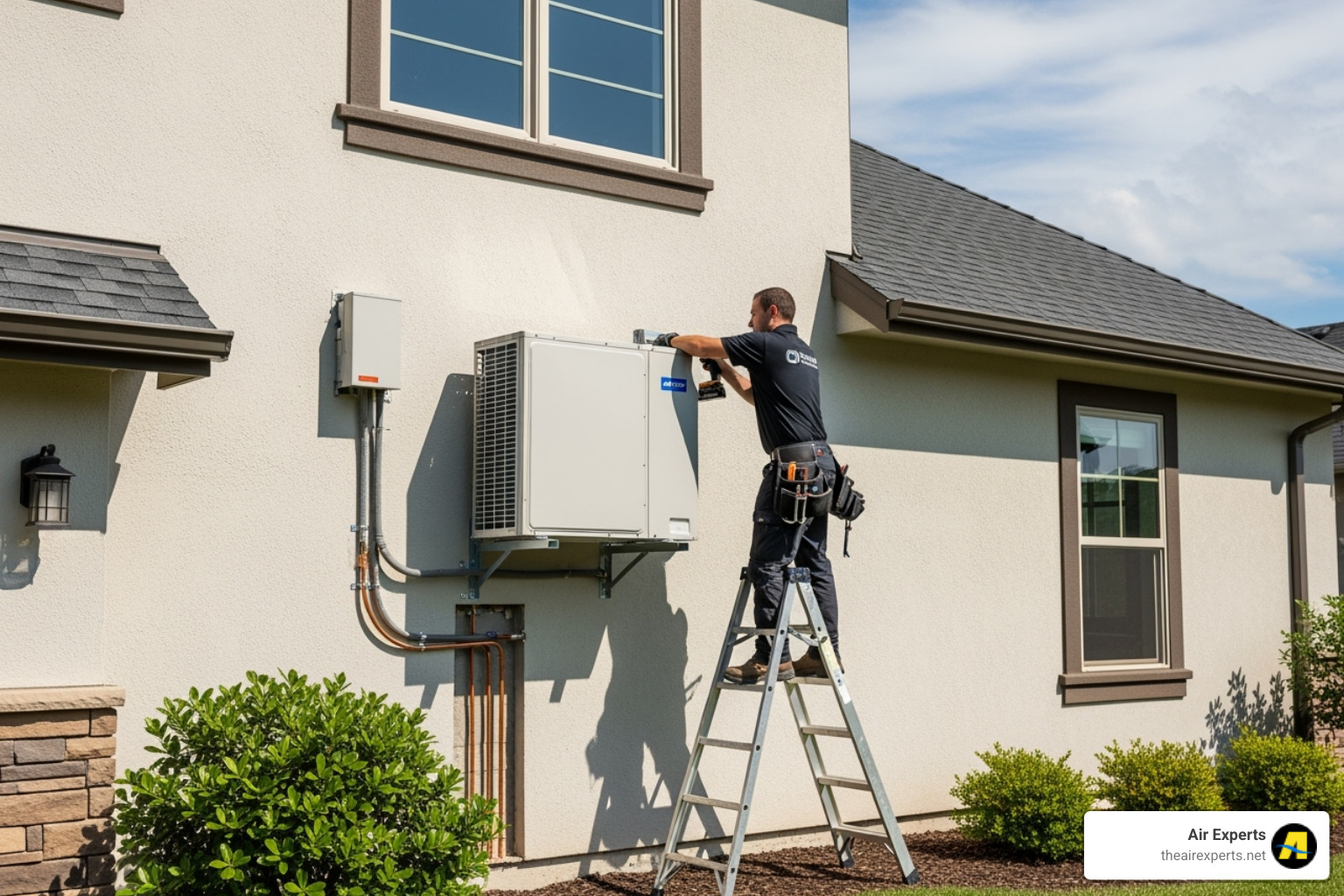
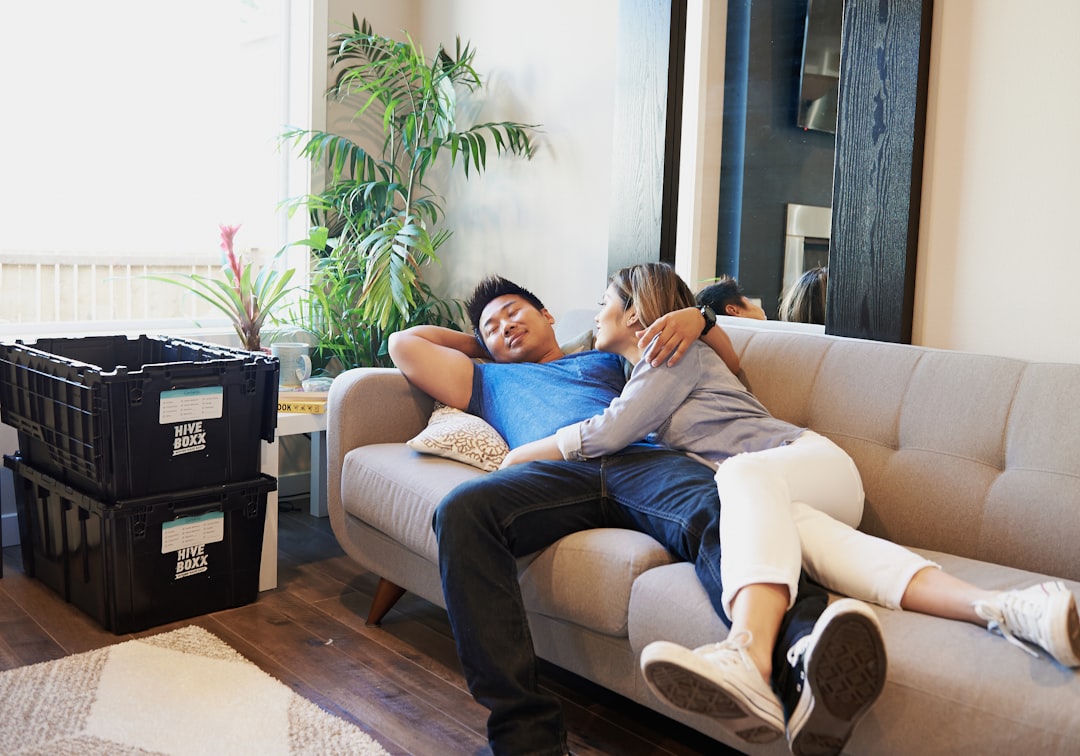
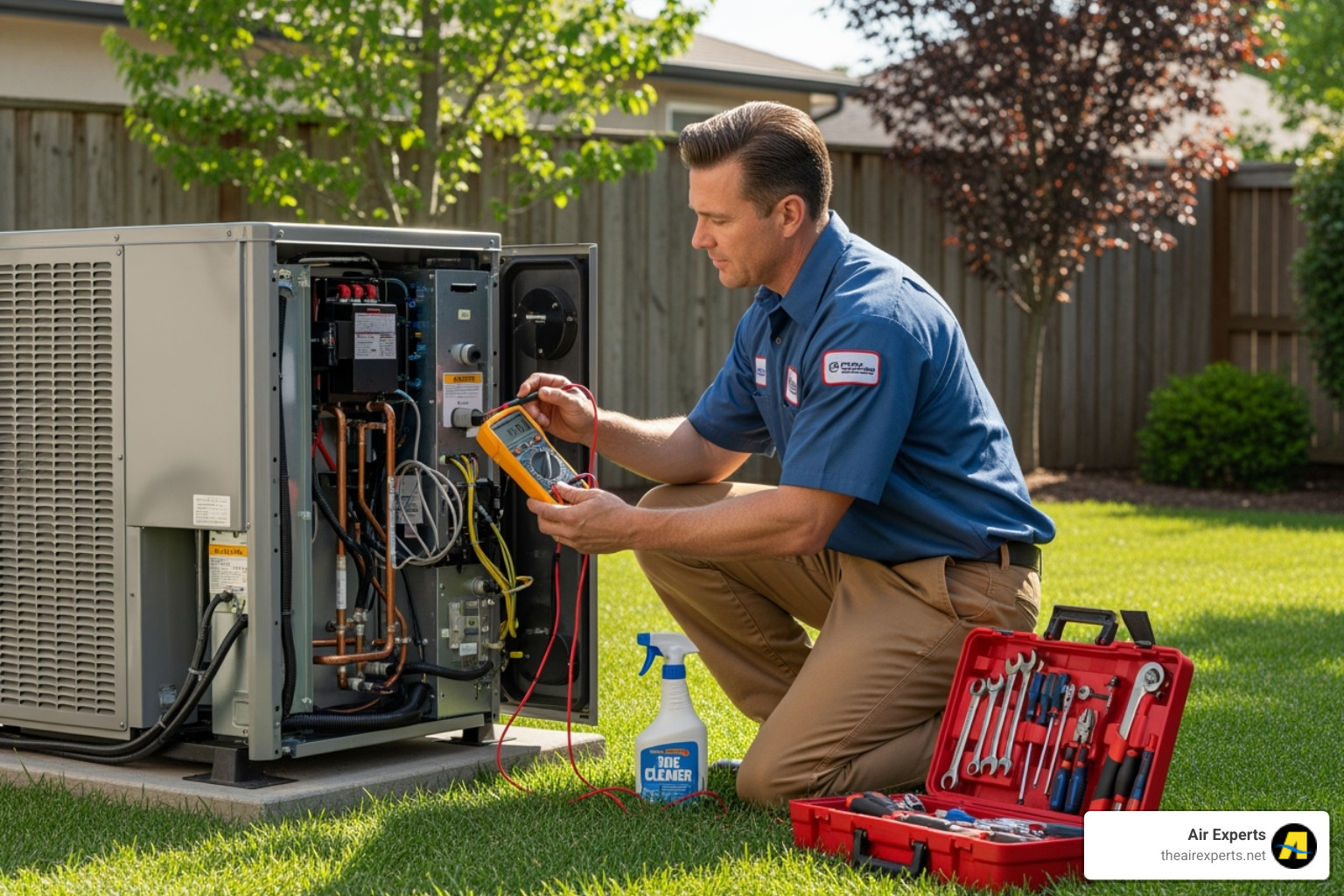
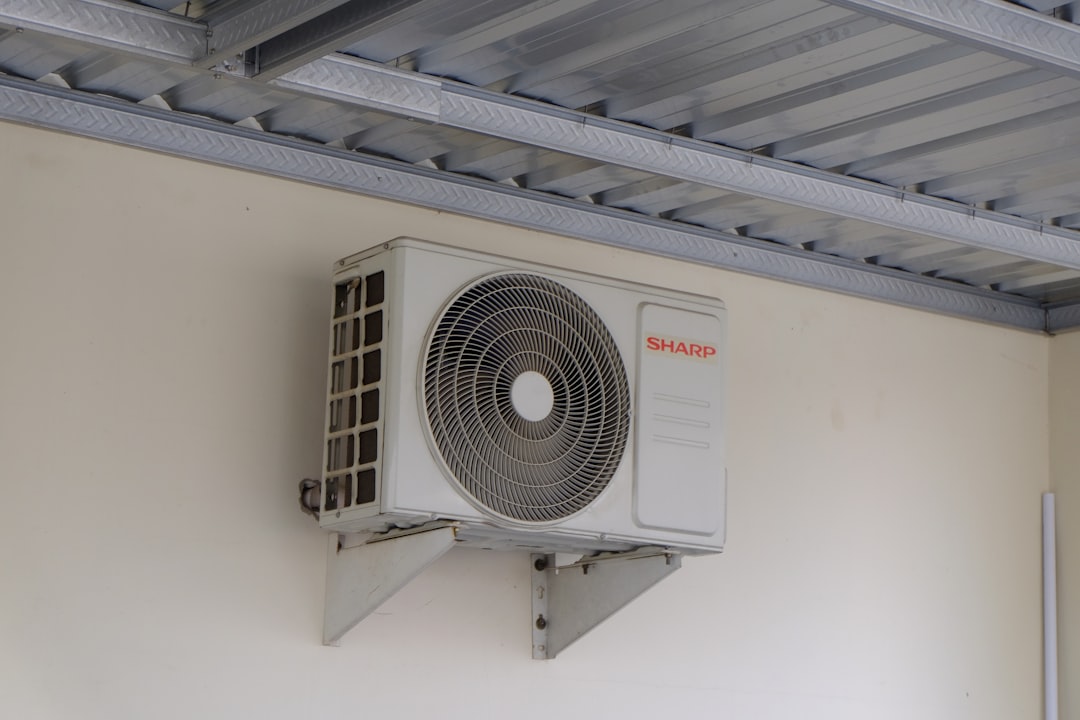
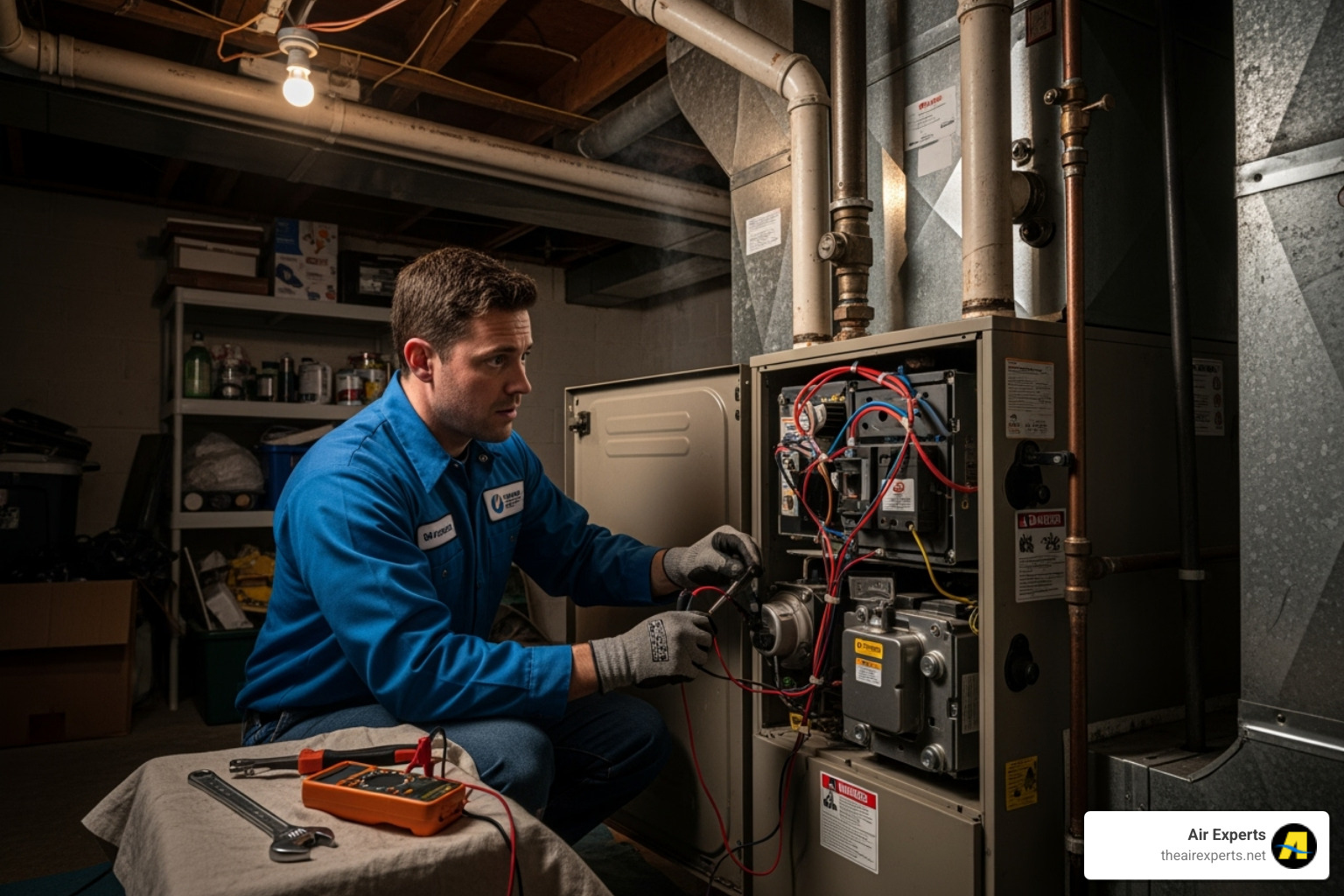

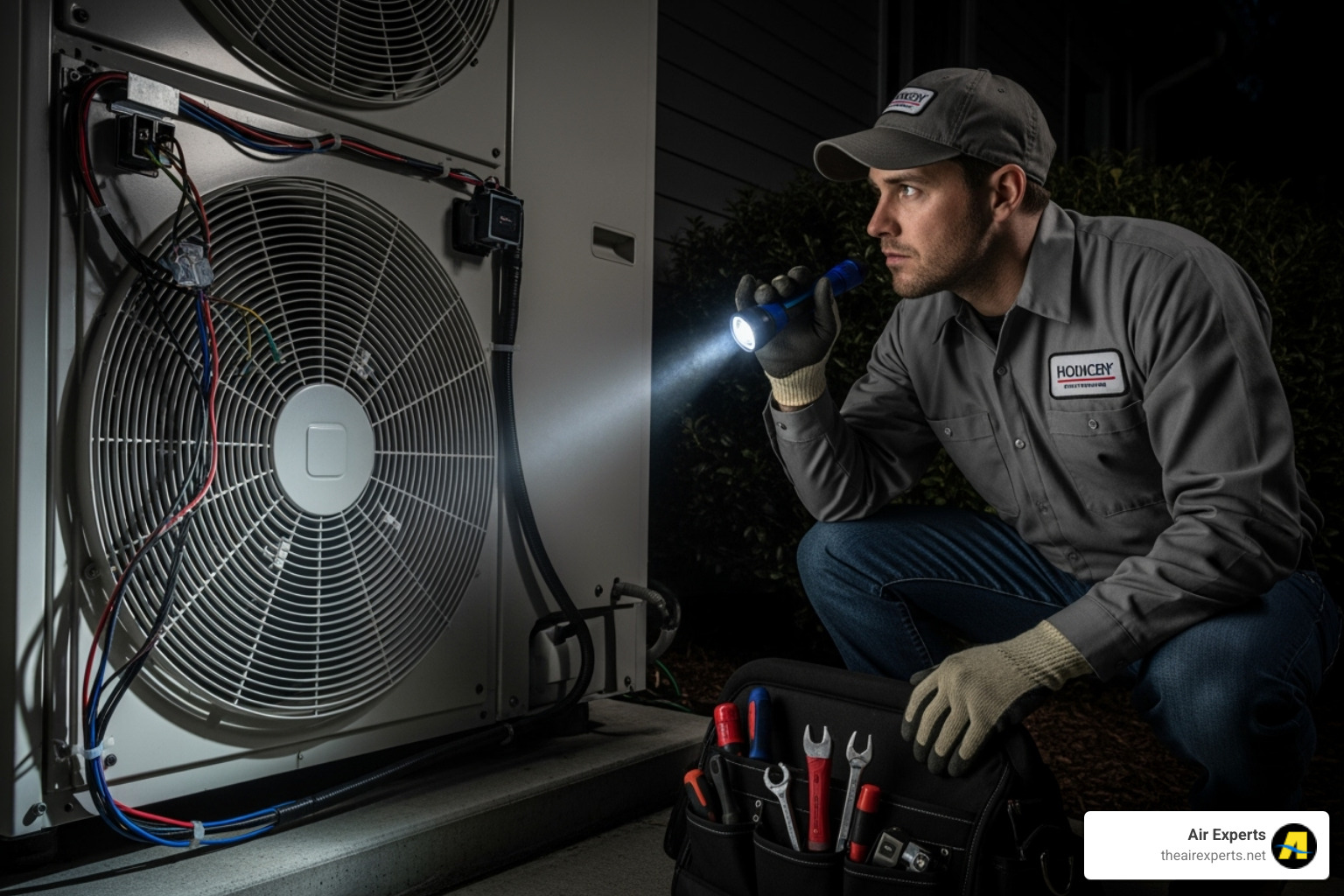
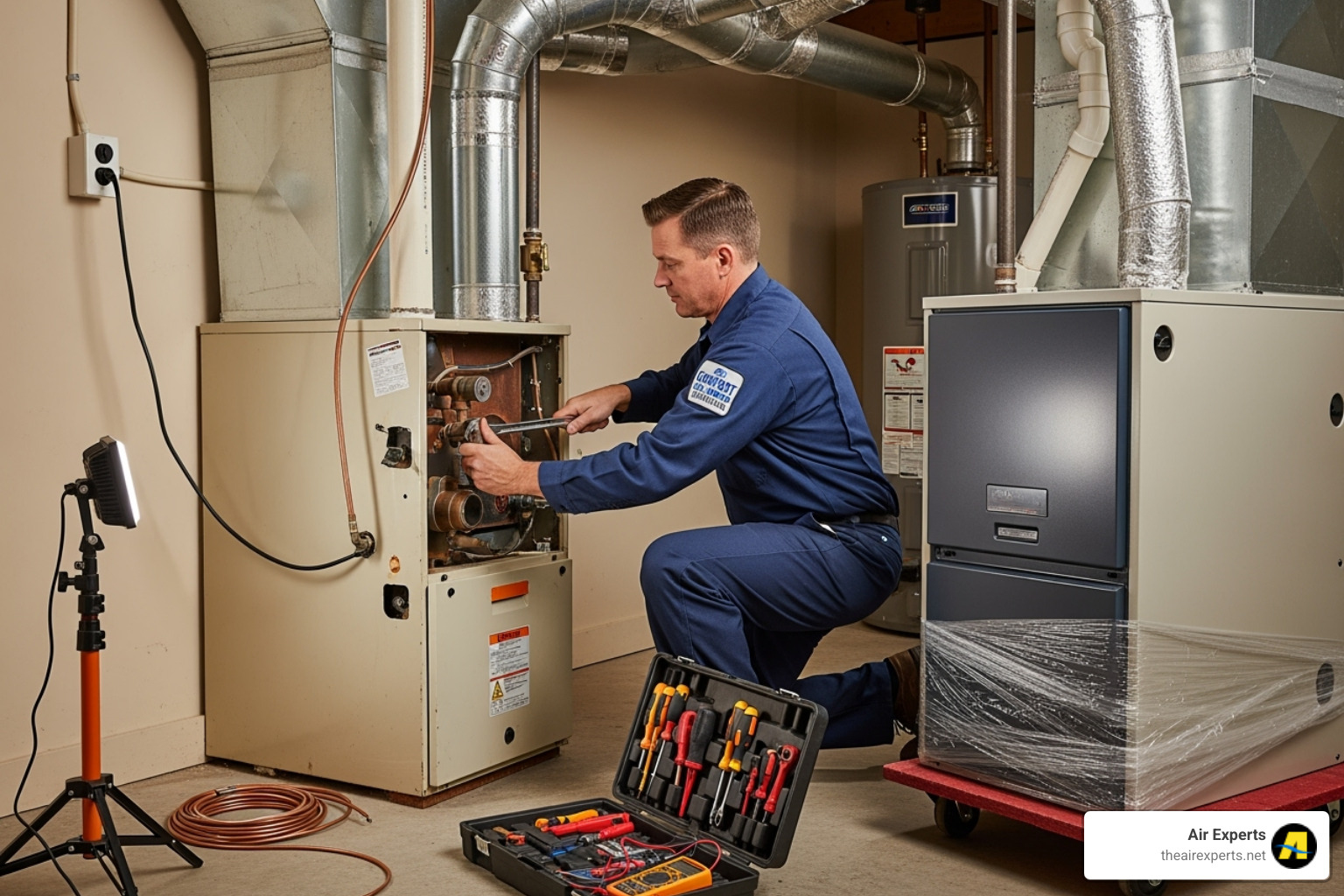
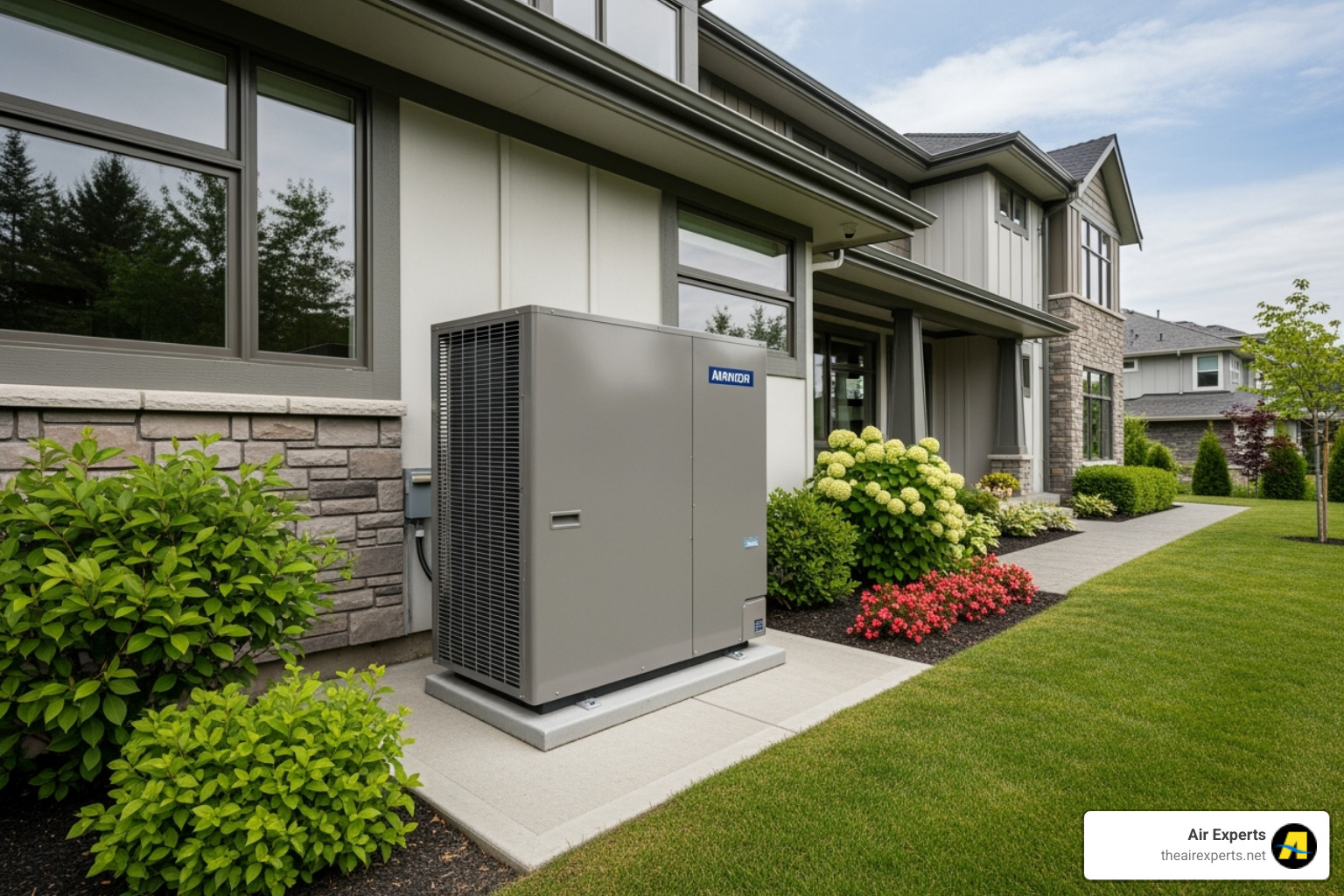
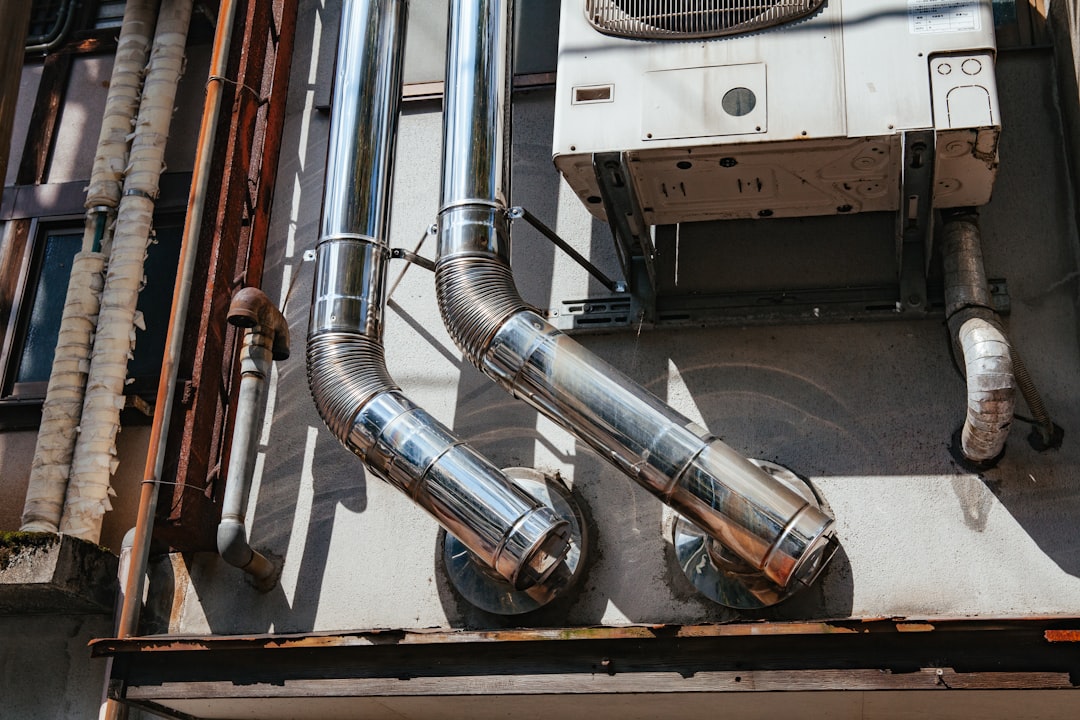
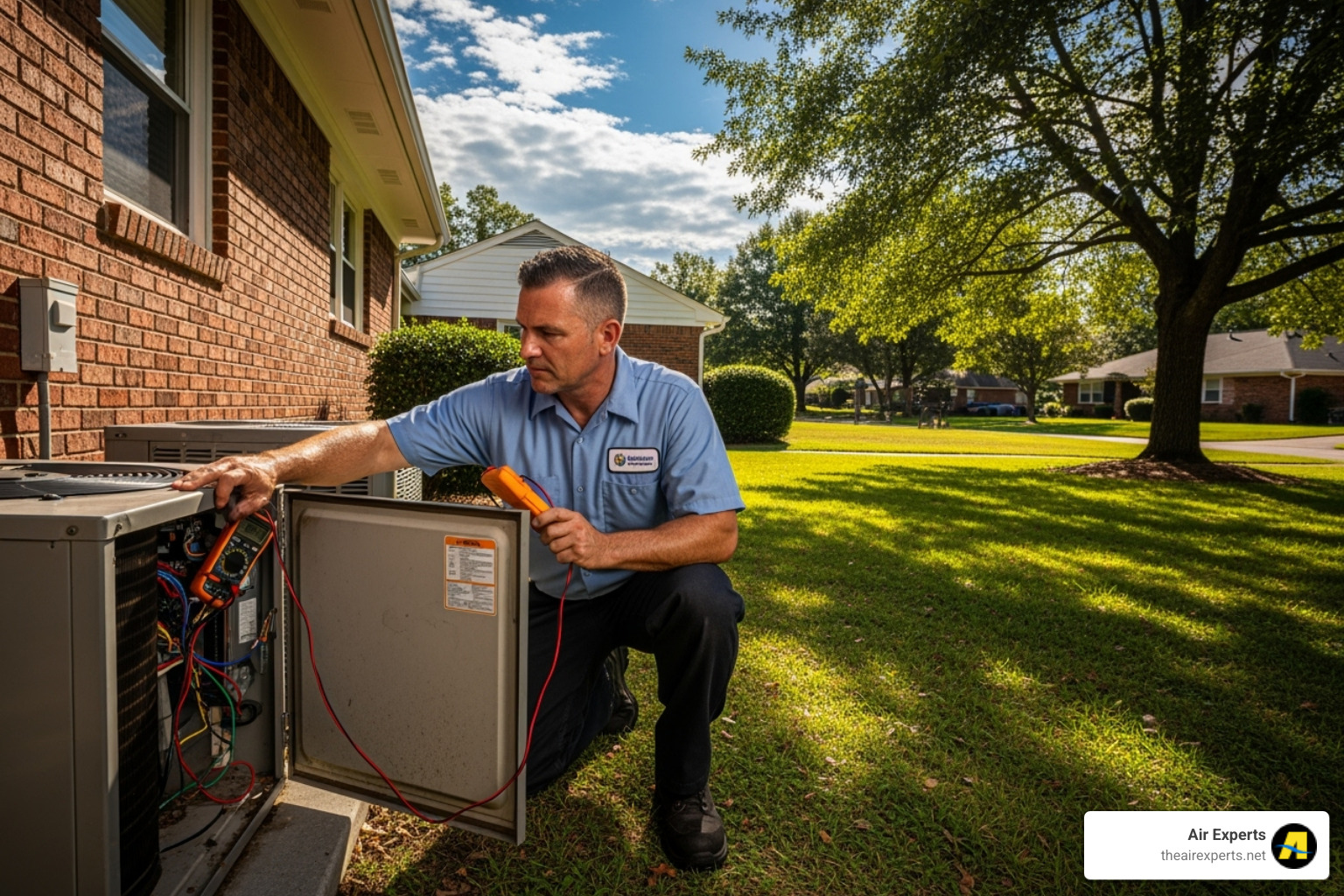
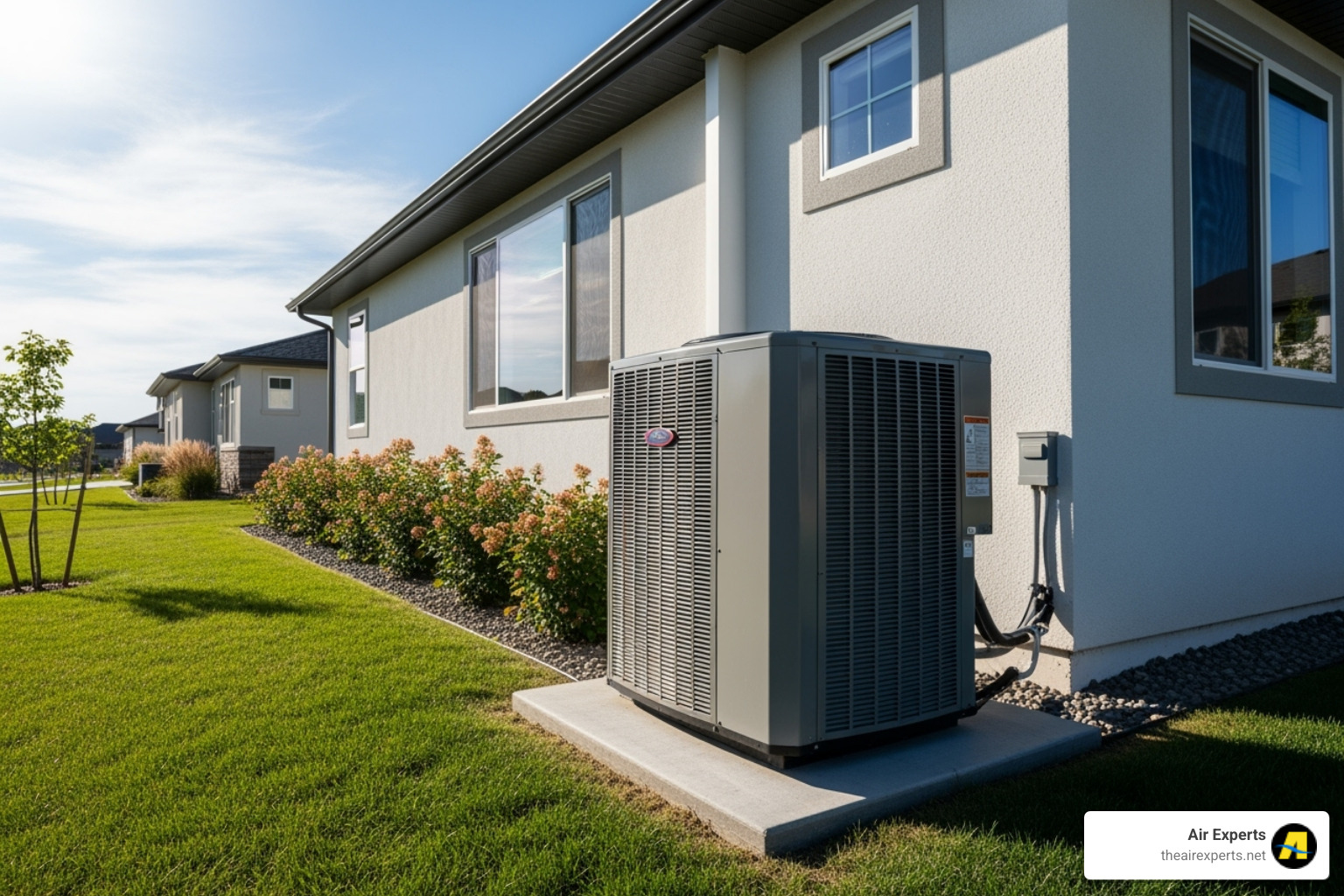
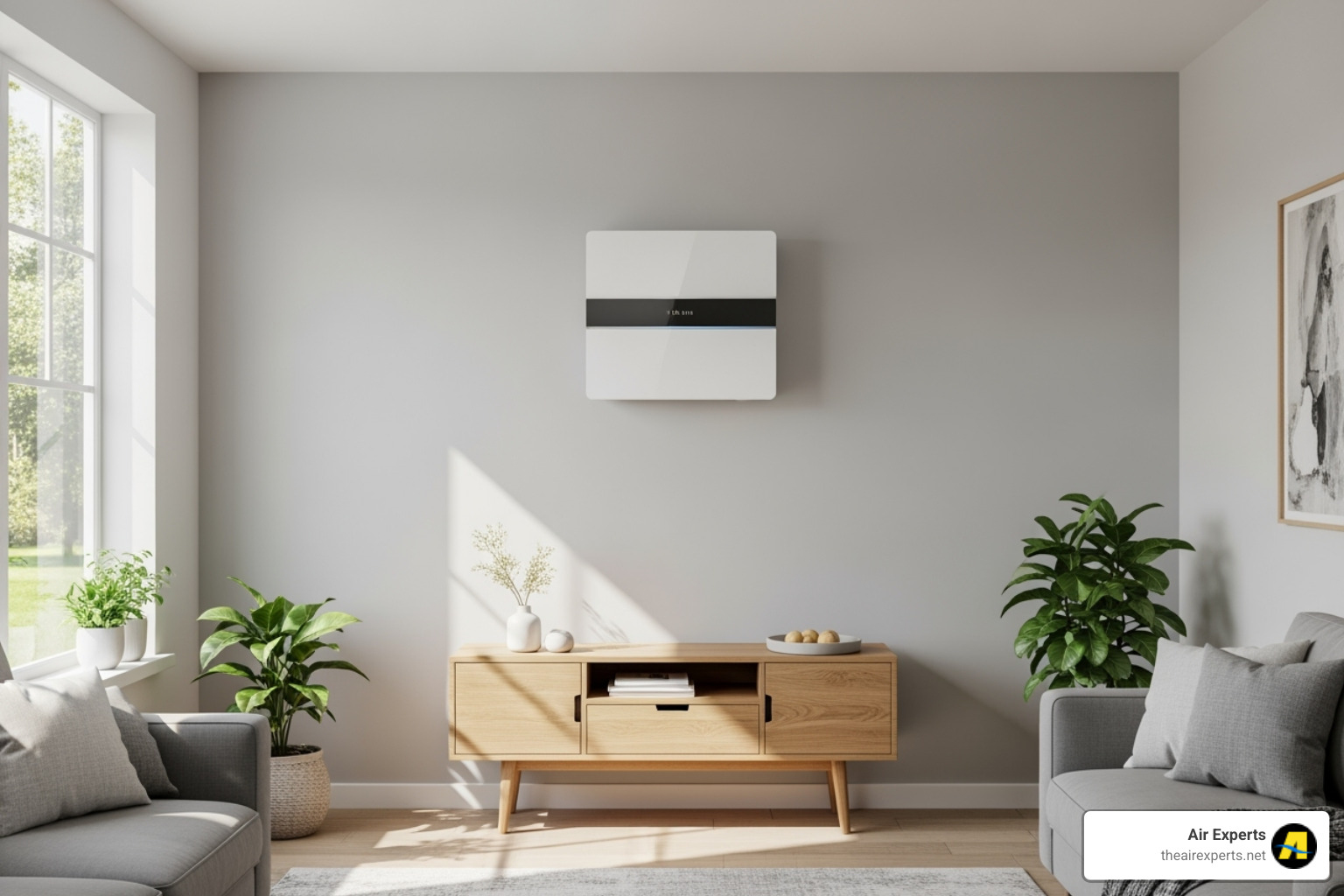
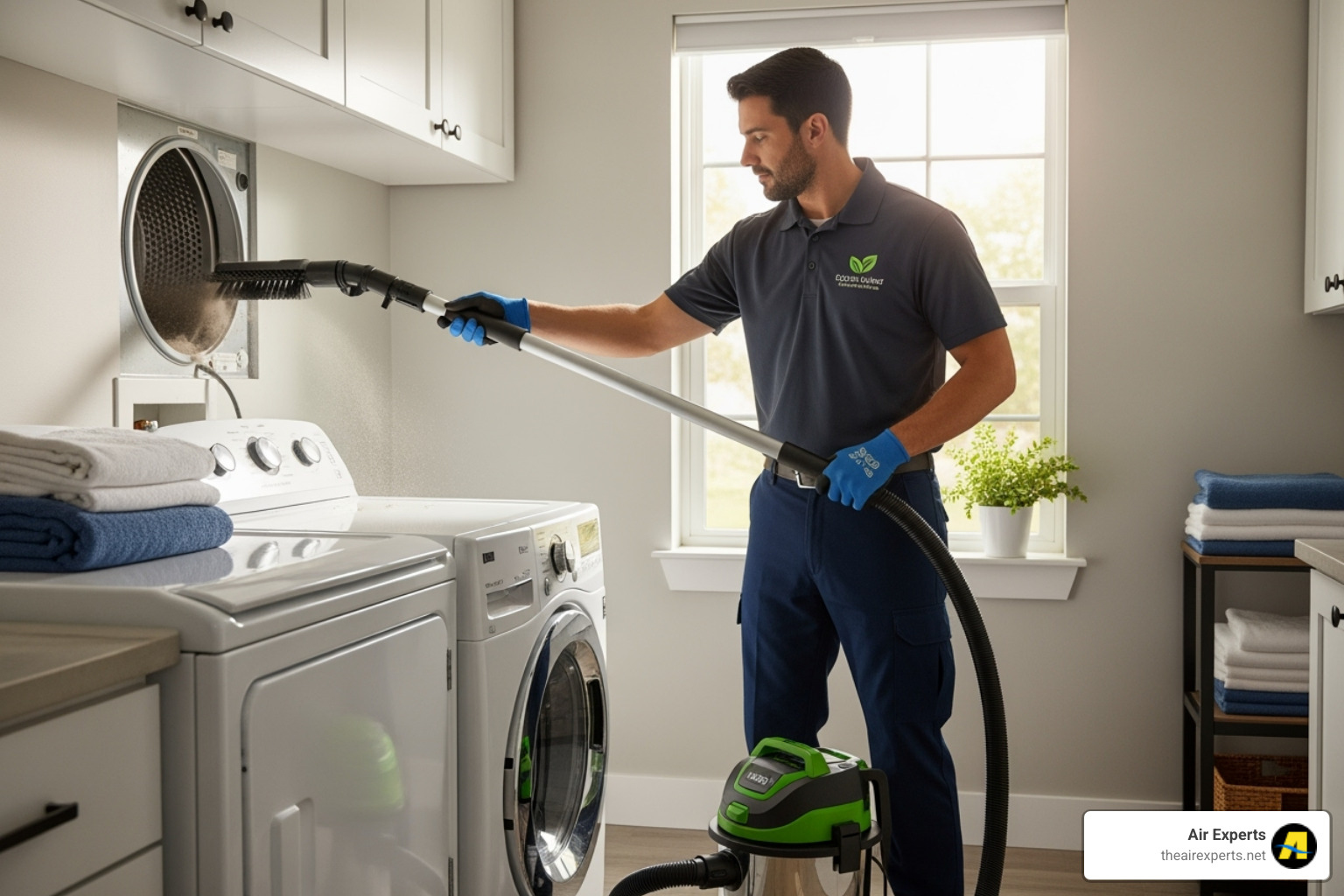

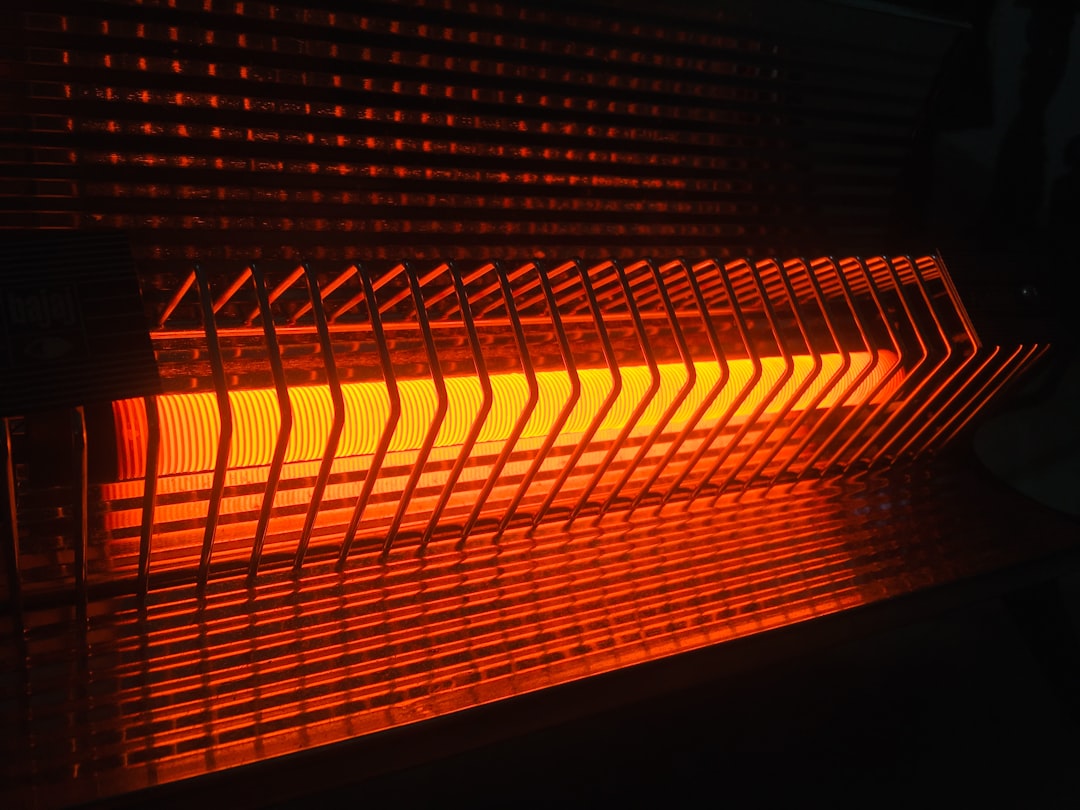
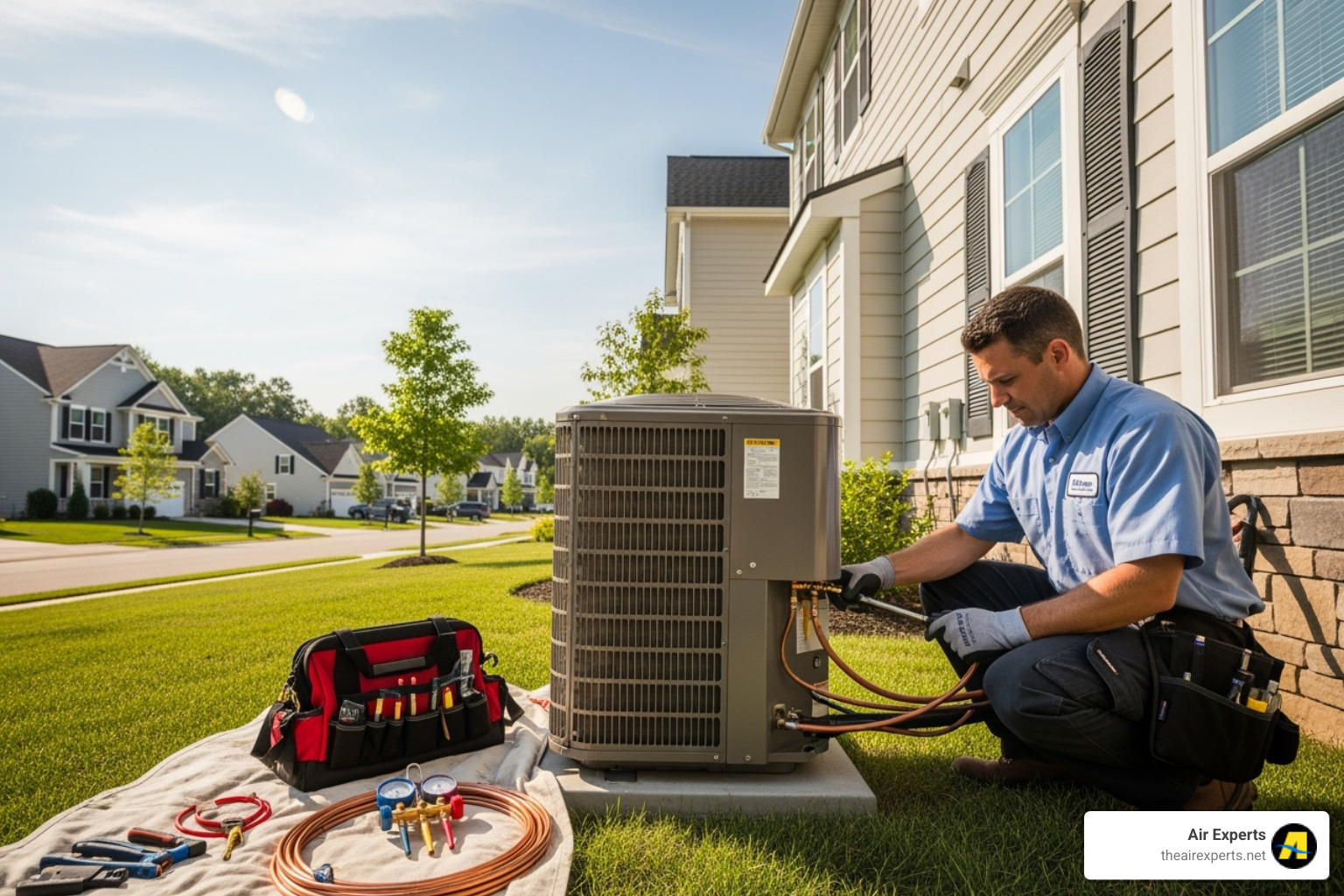
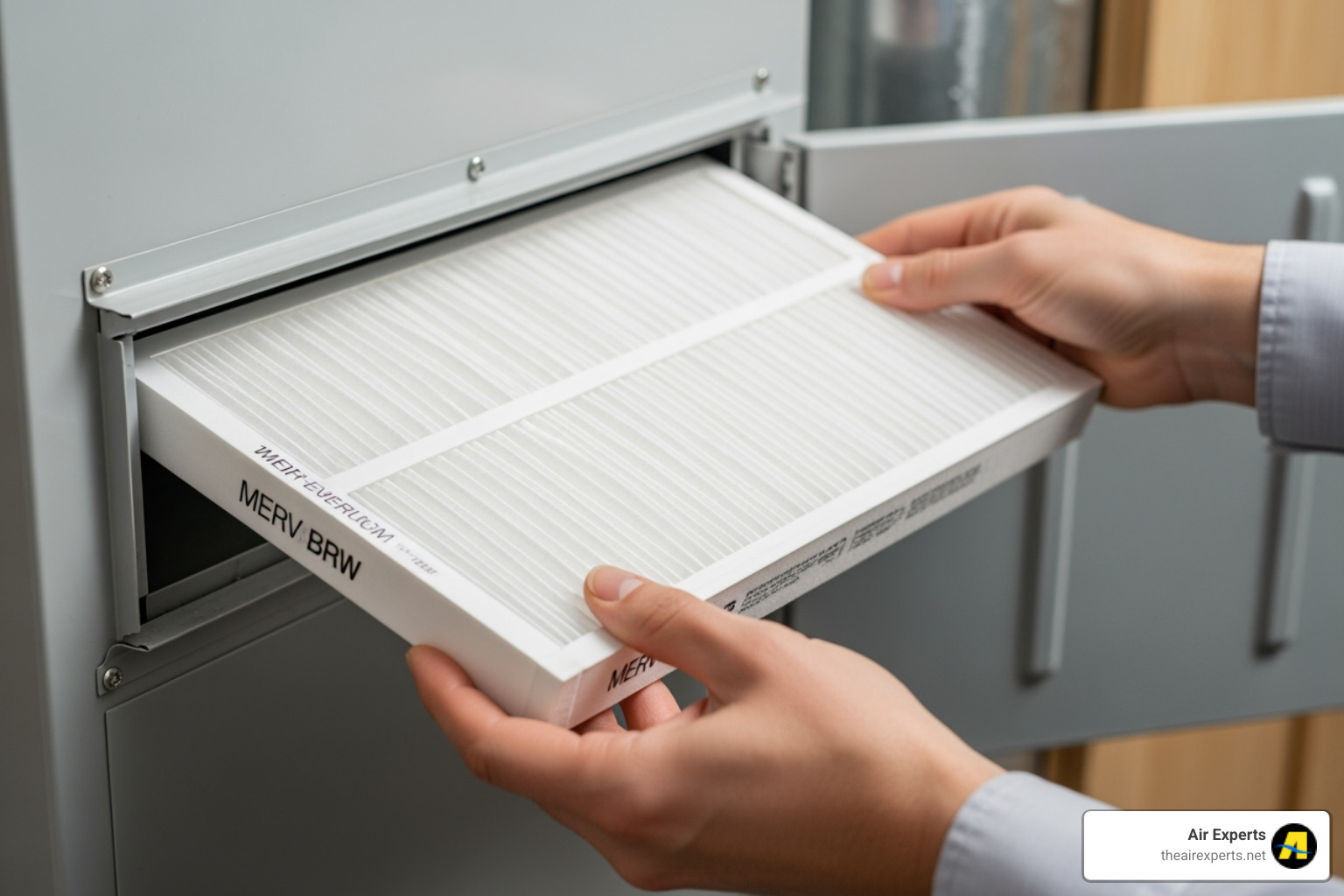
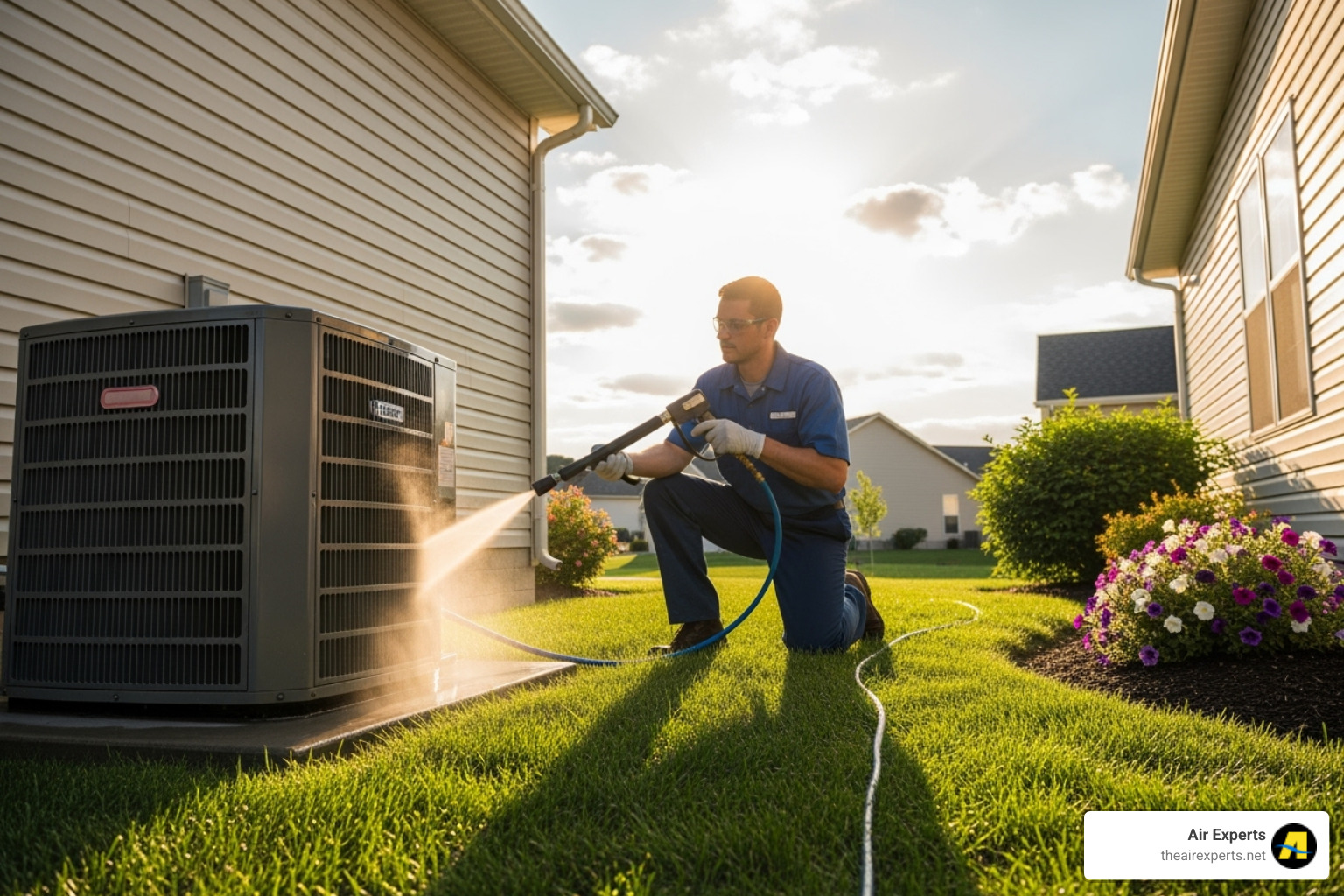
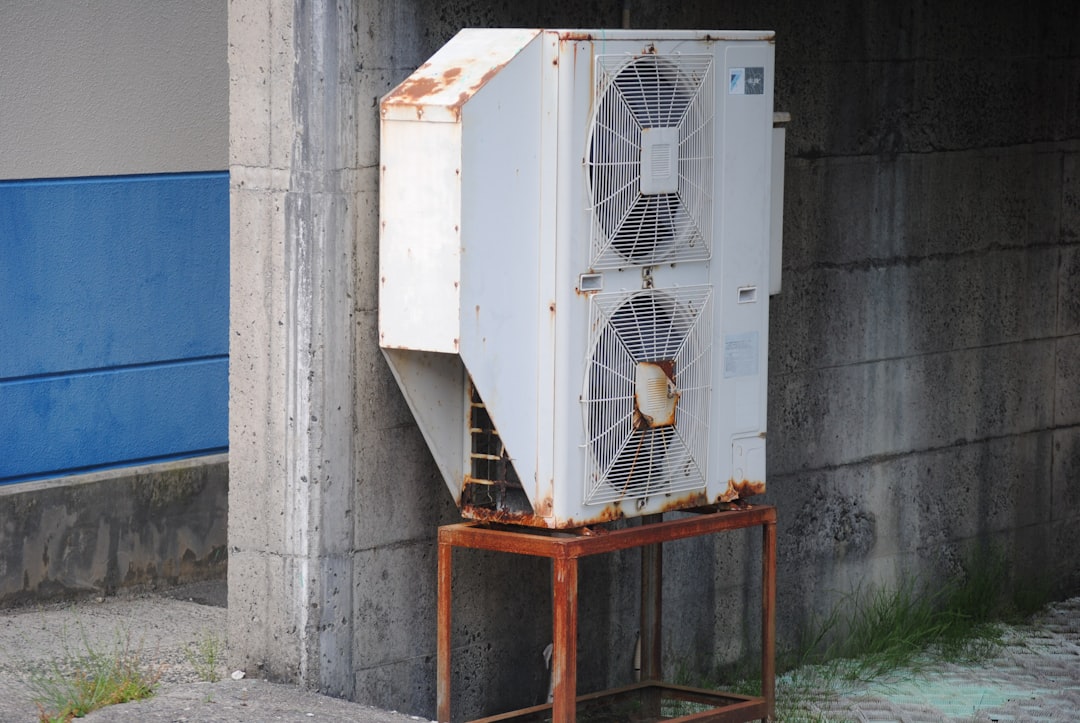
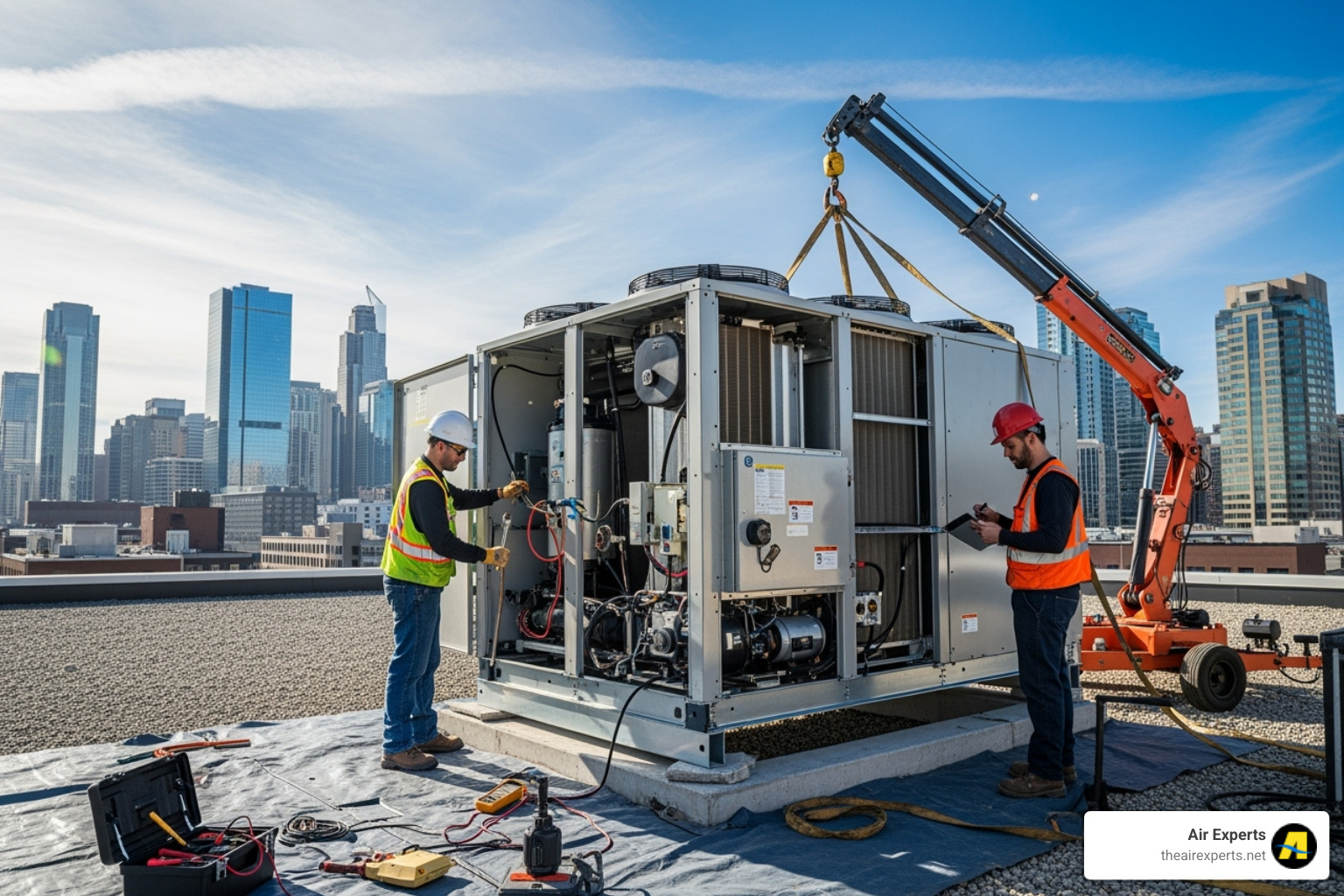
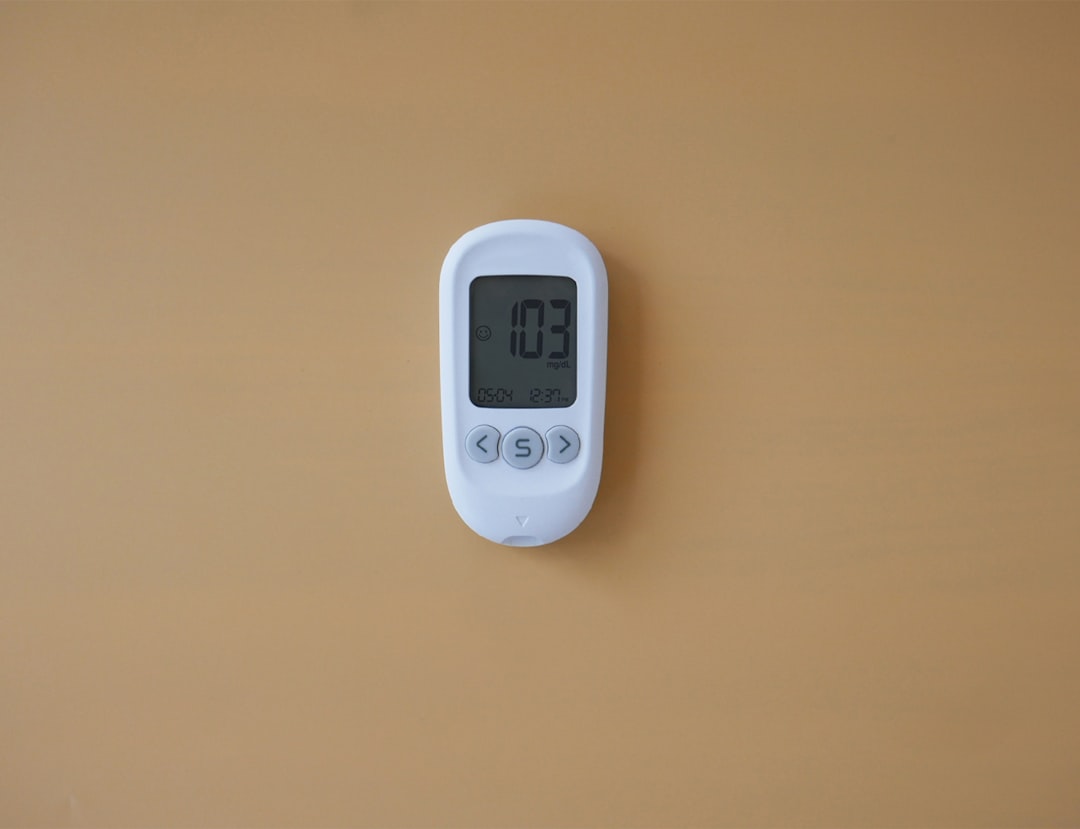
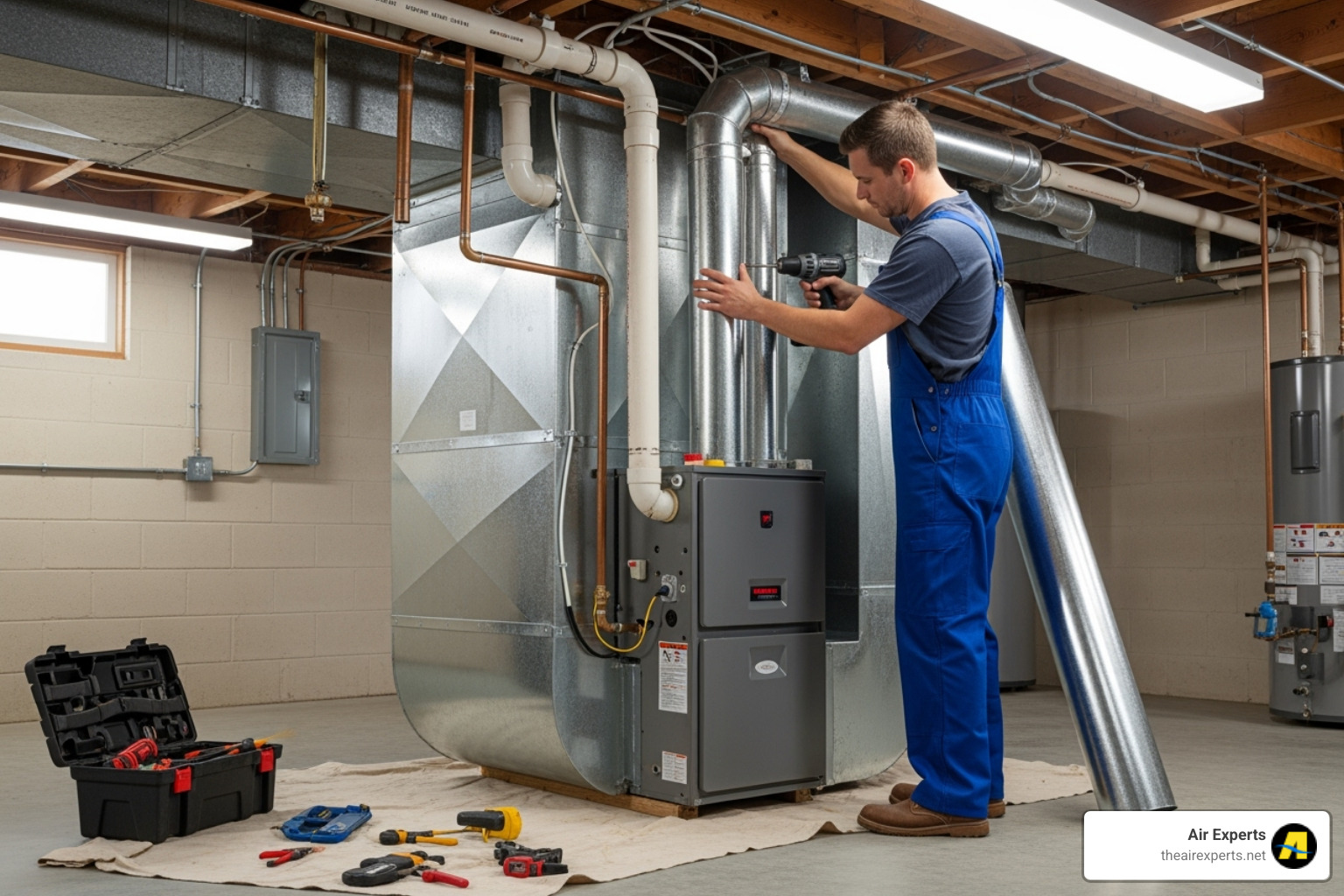
.svg)
.svg)




.svg)
.svg)
